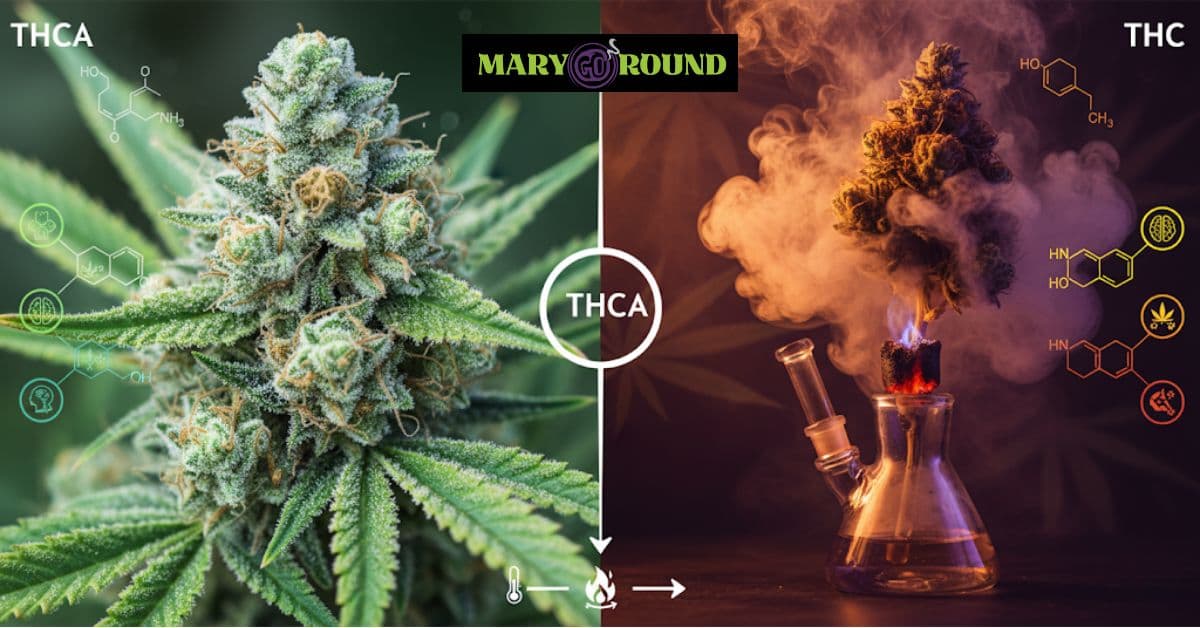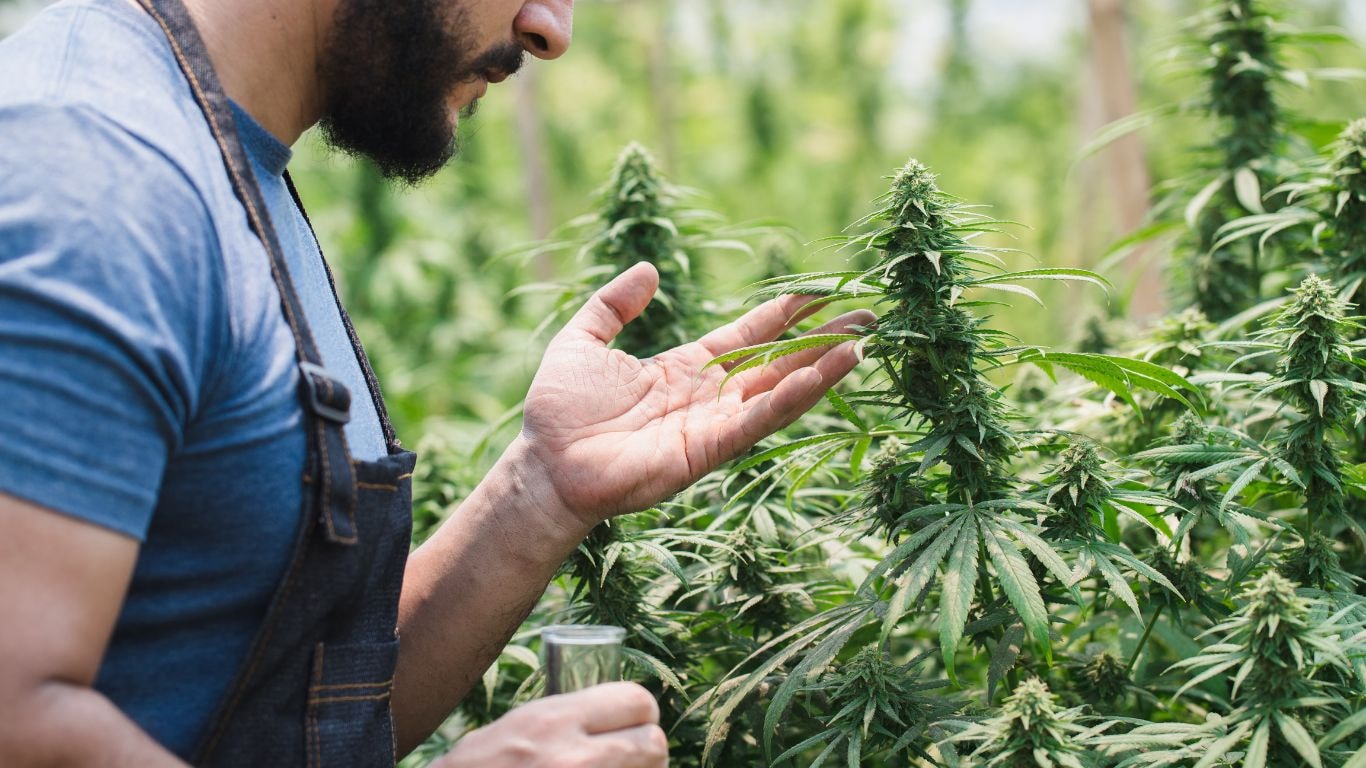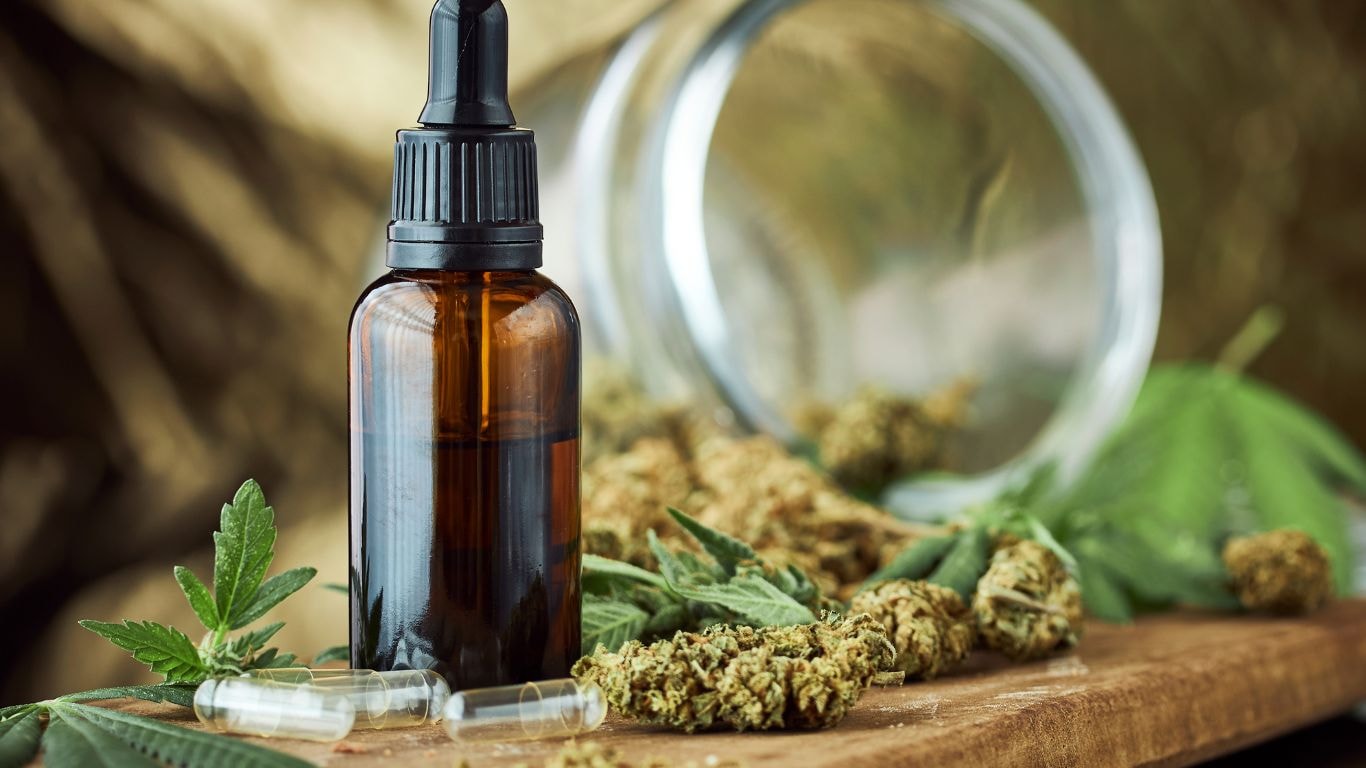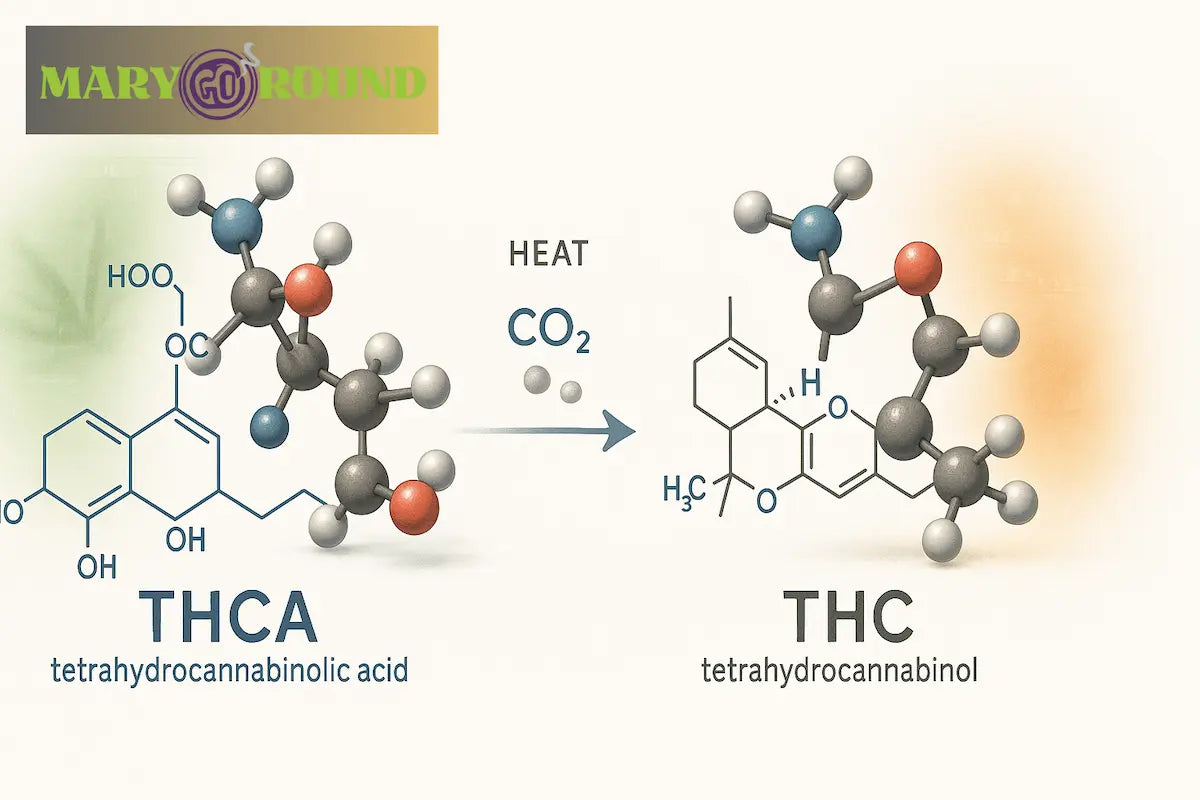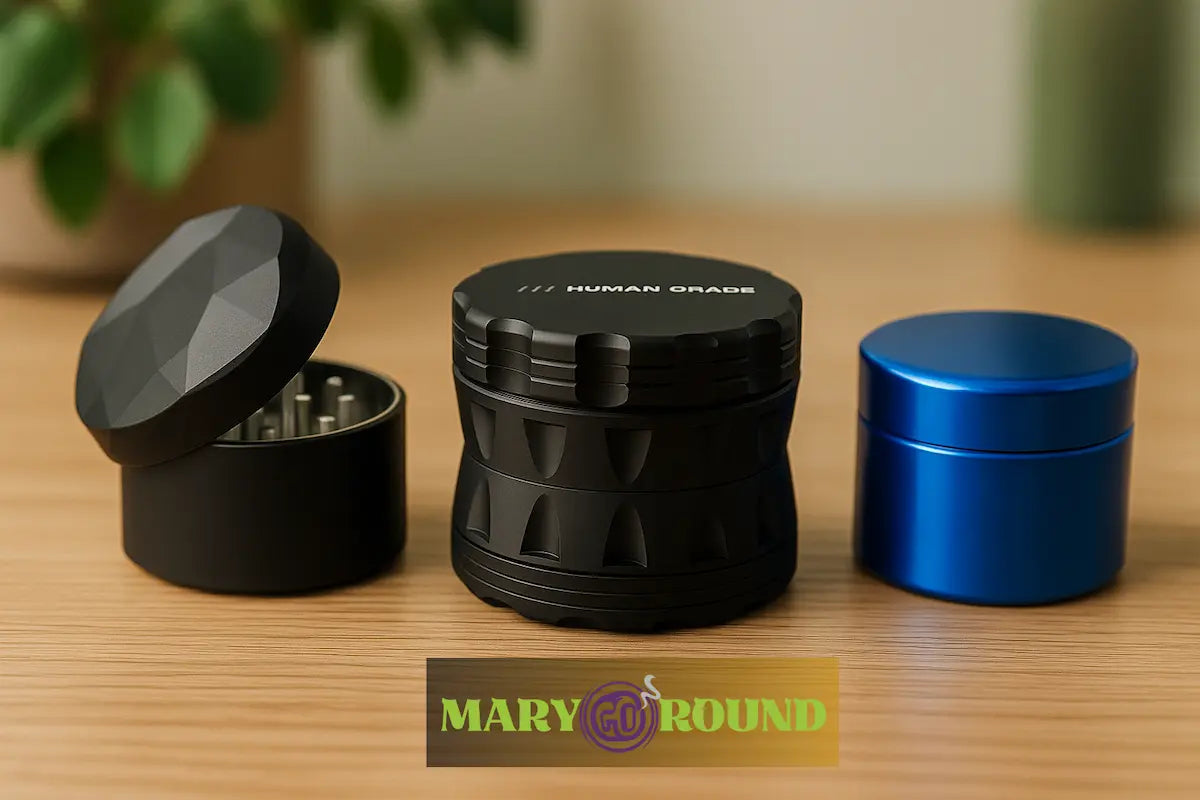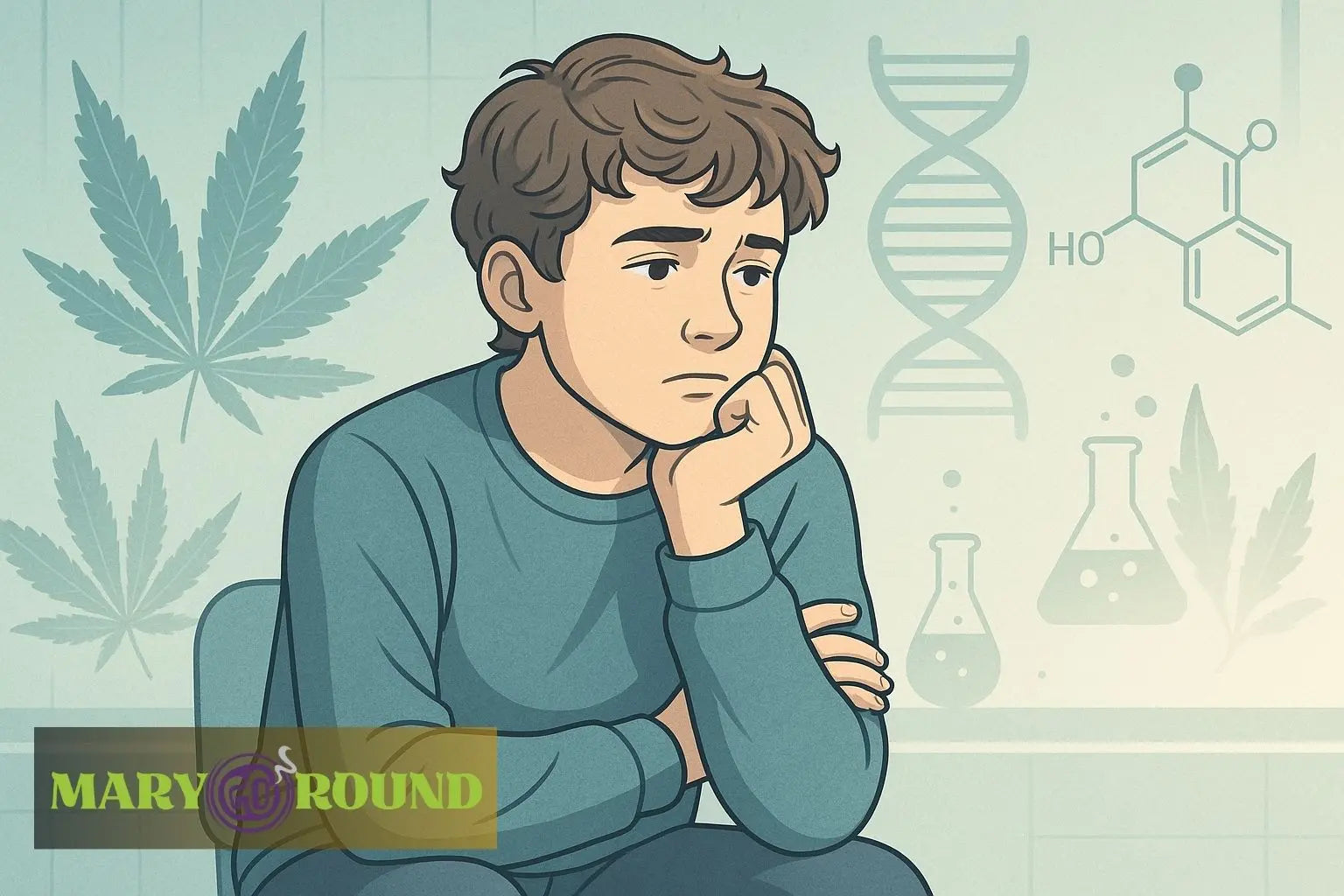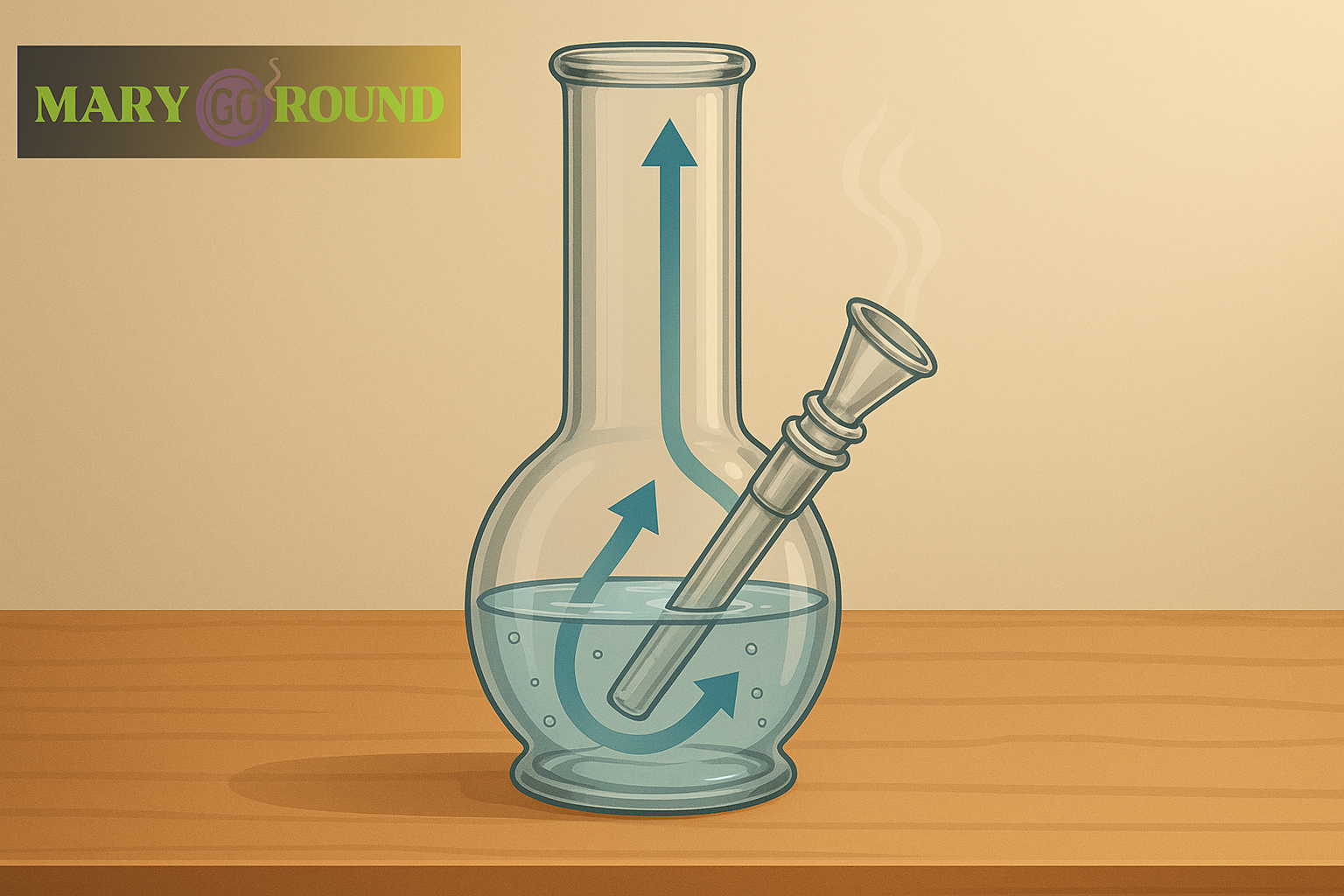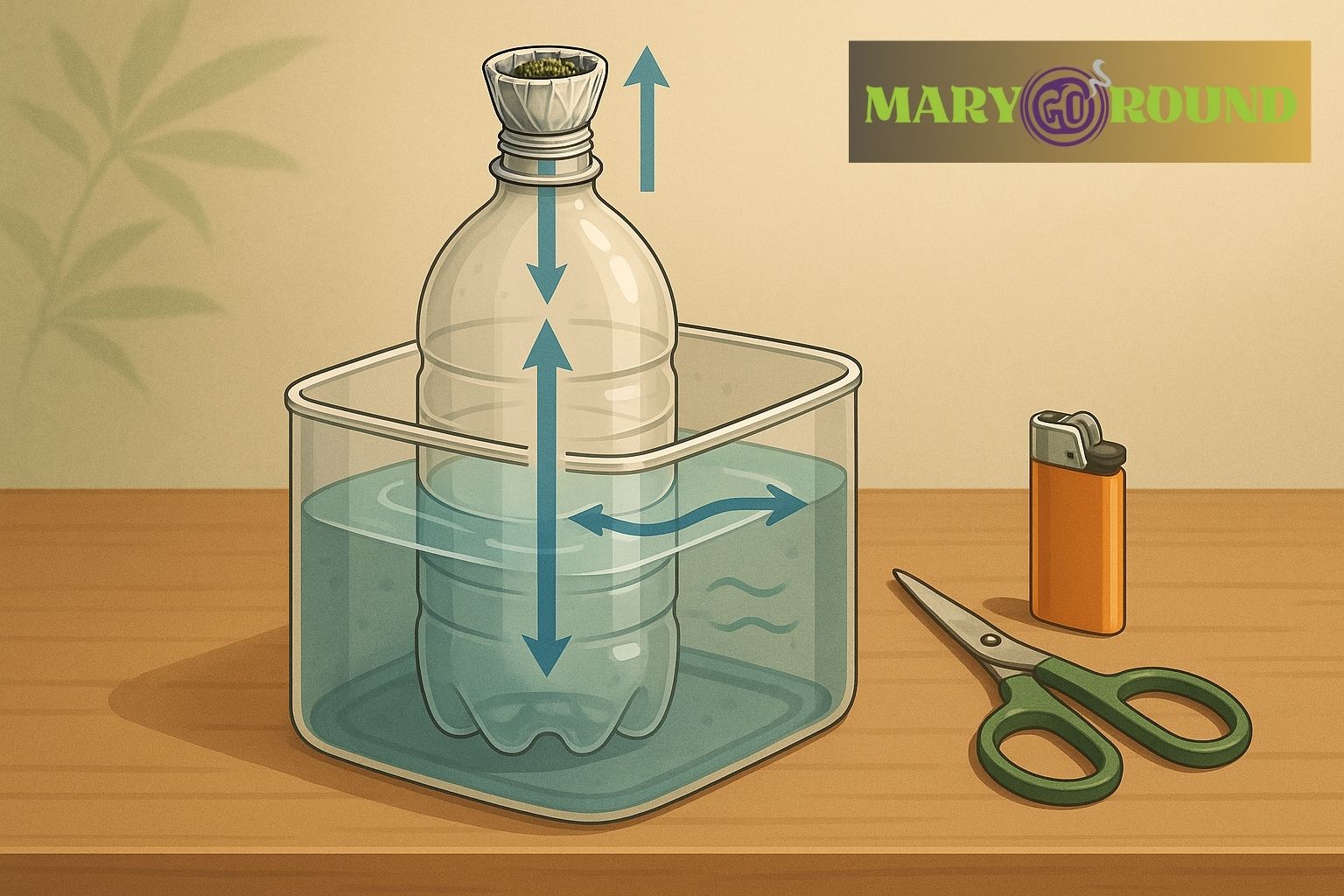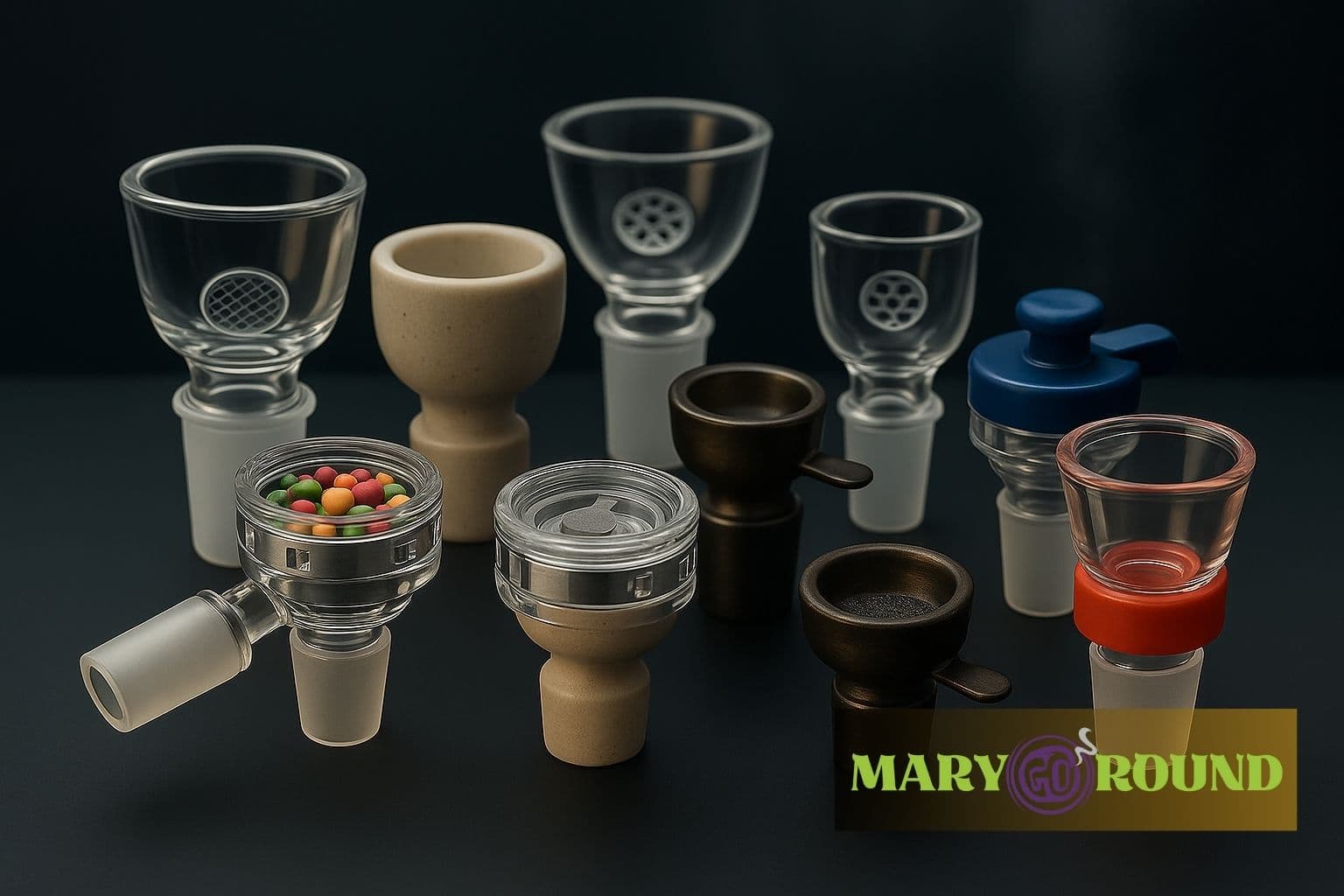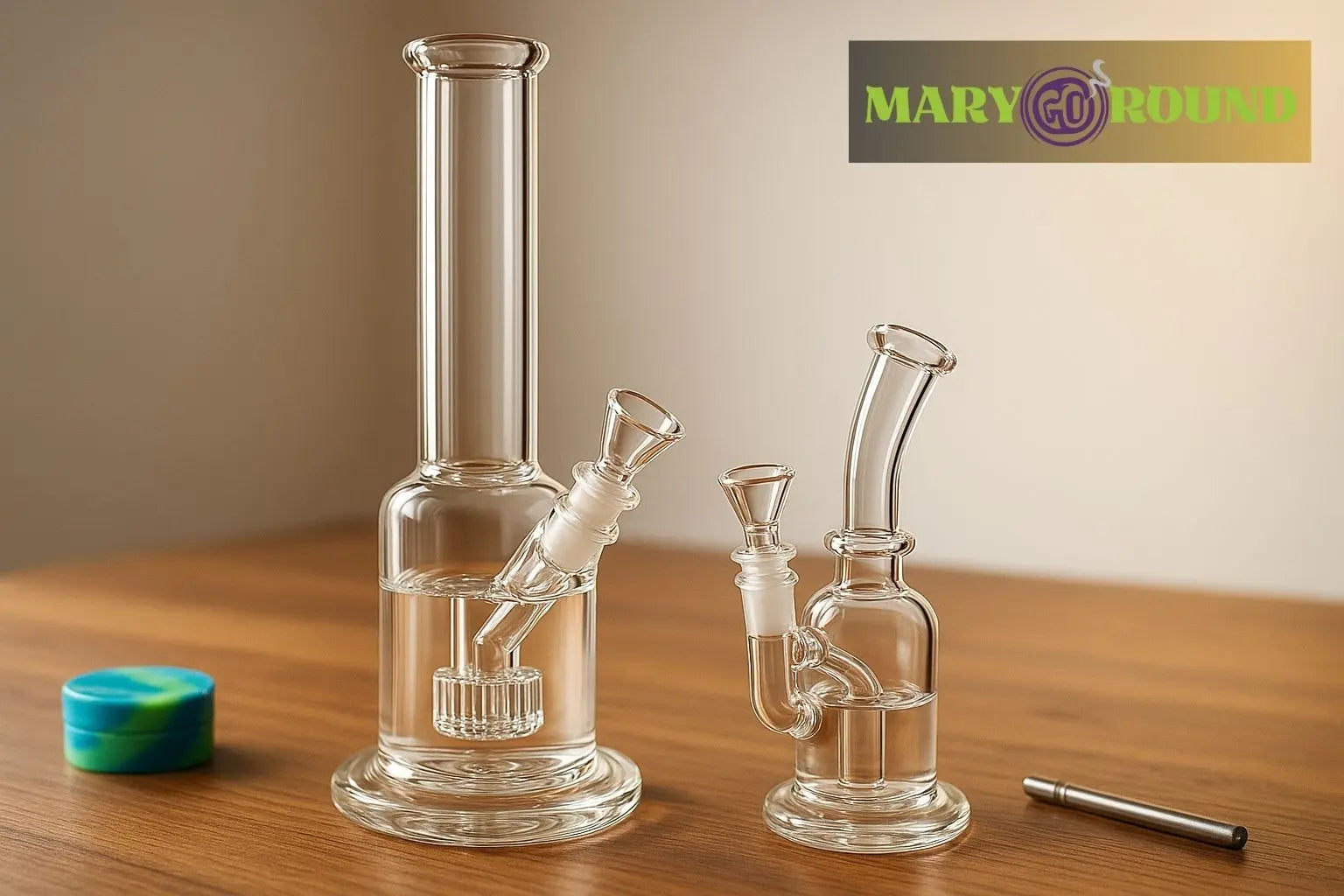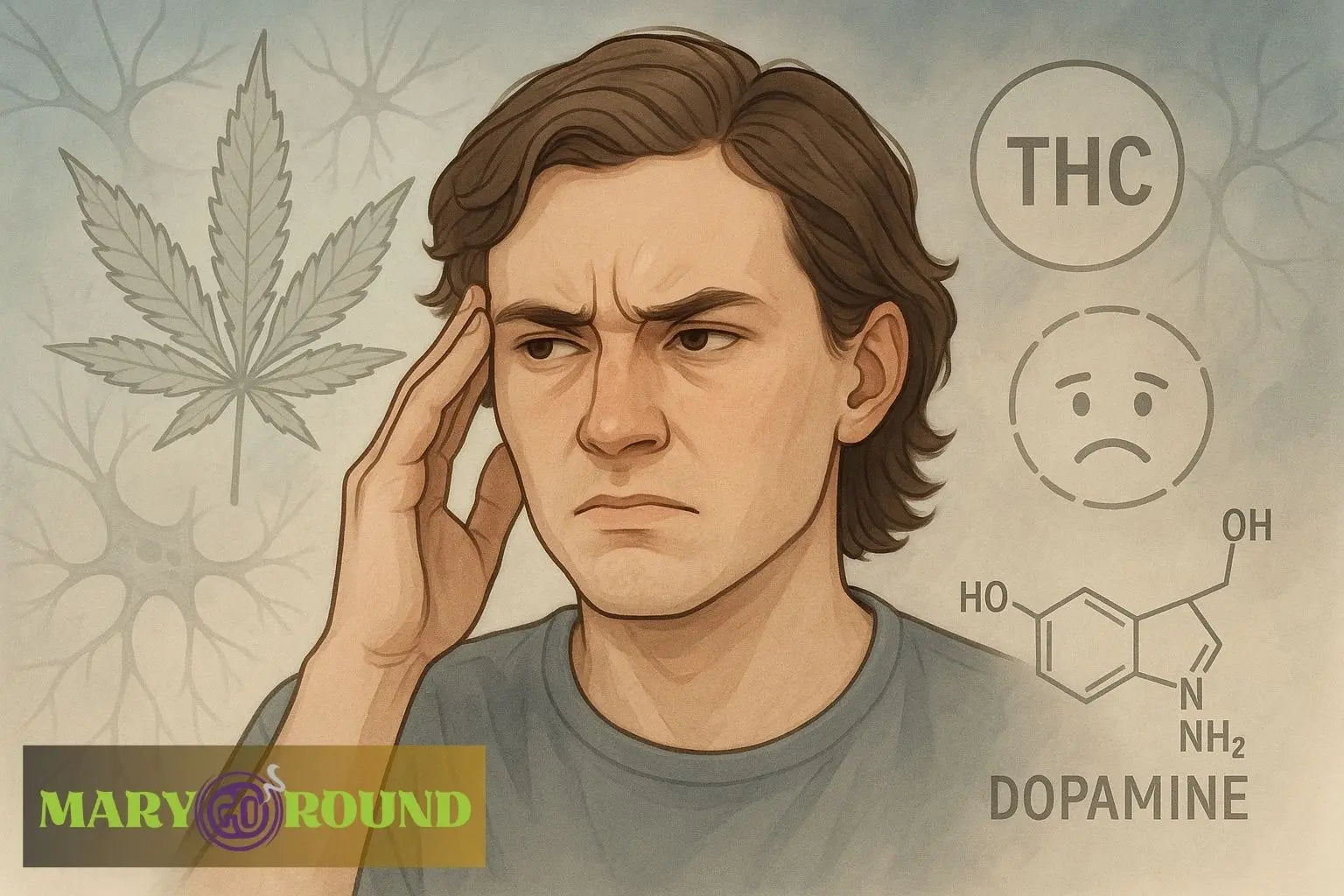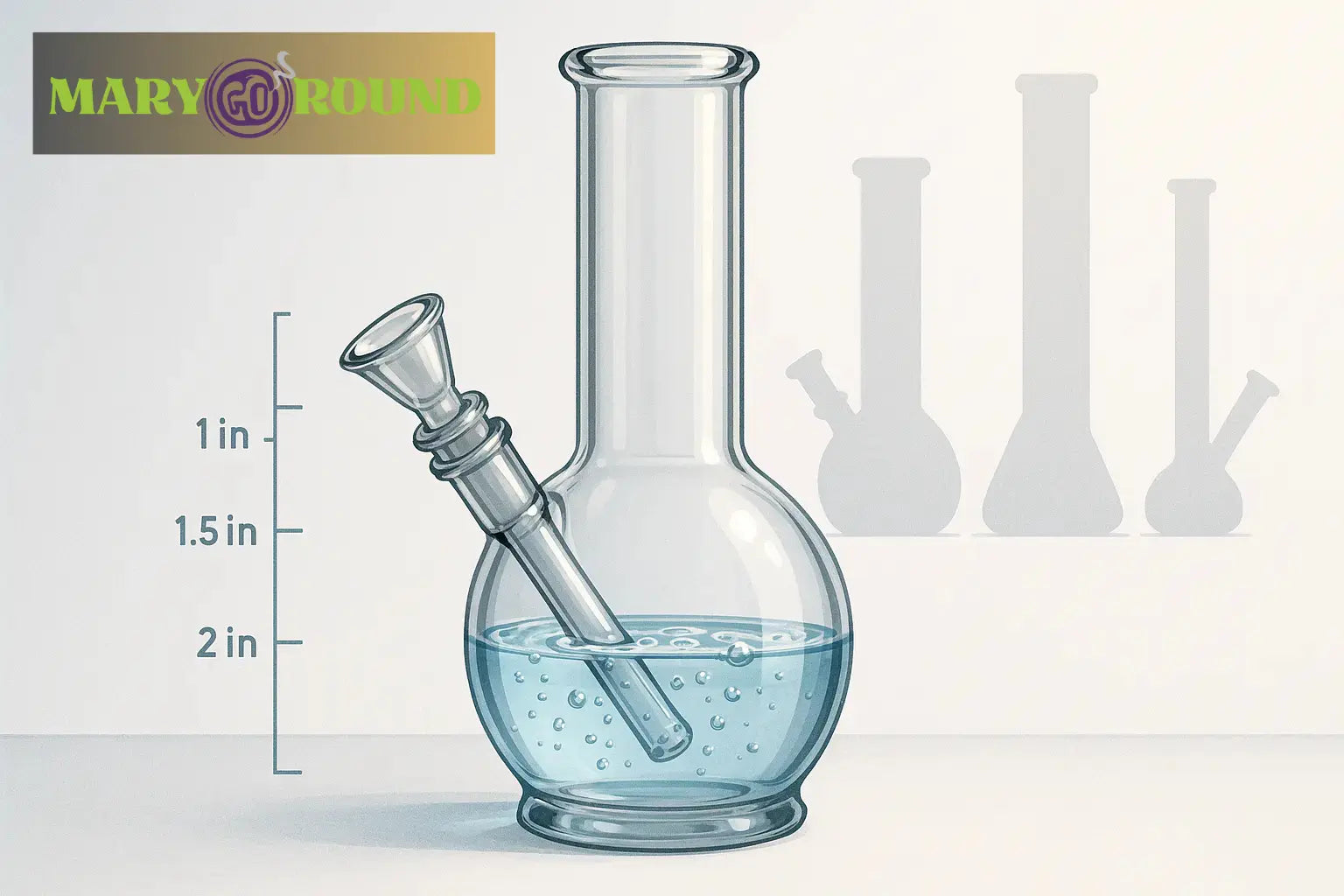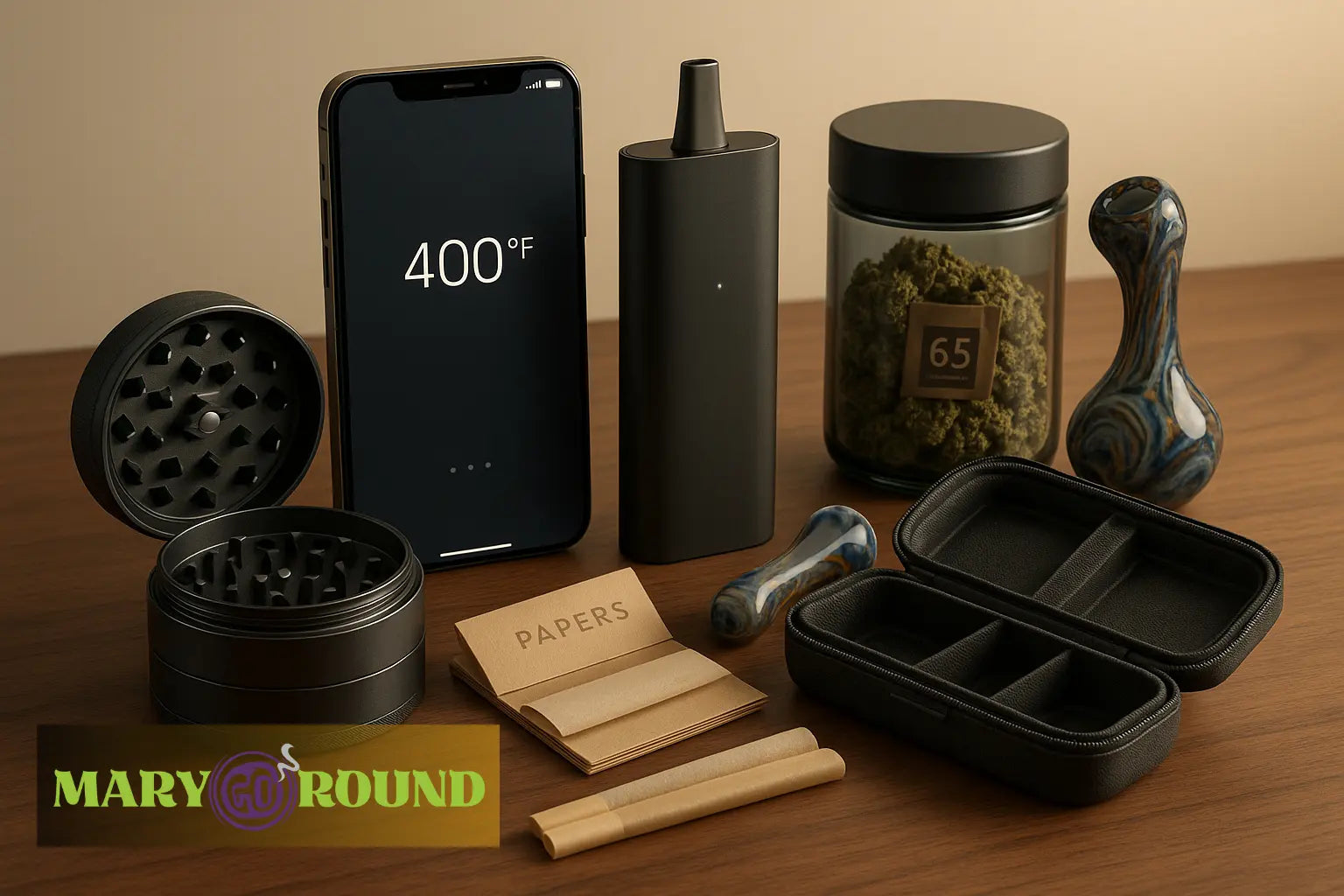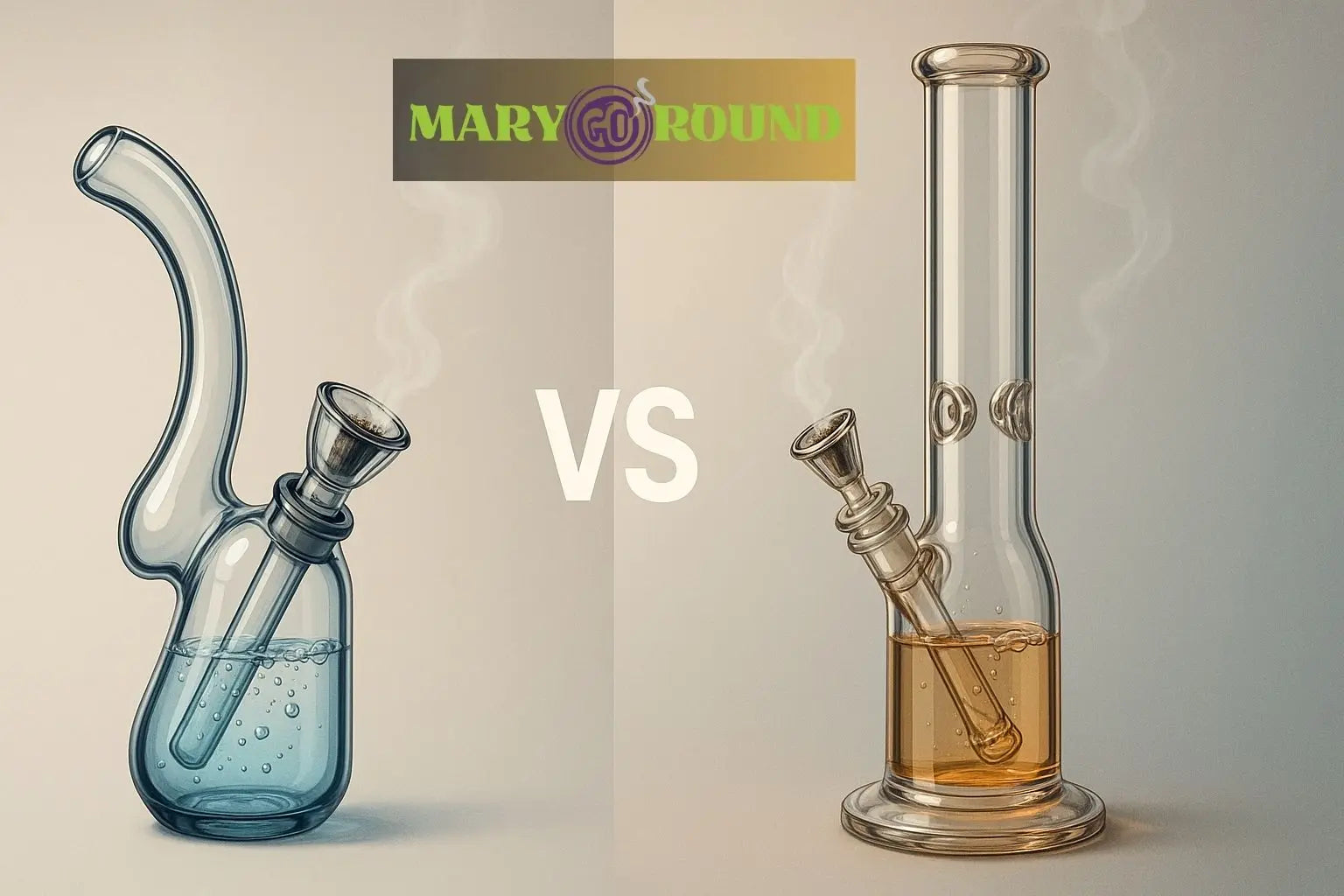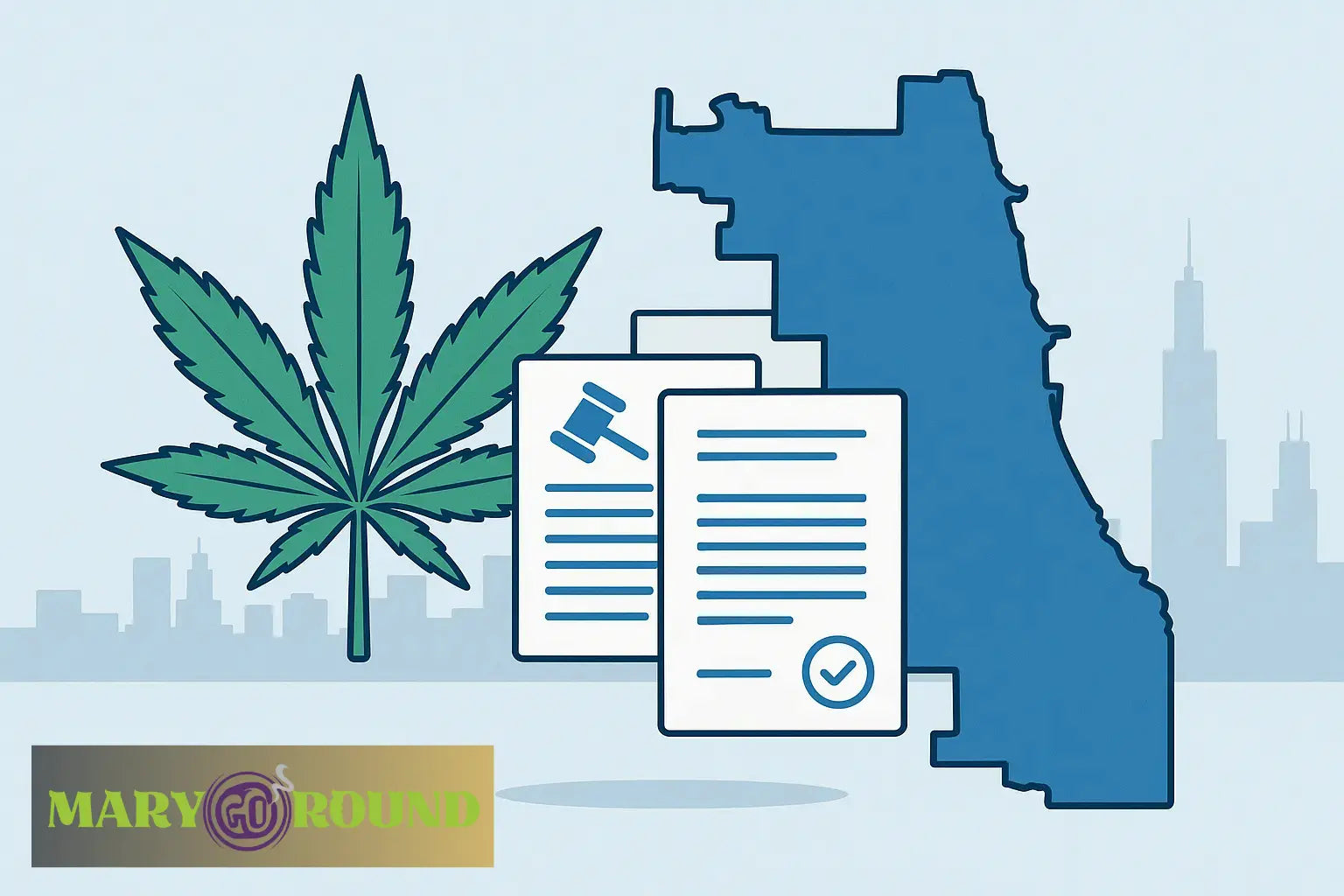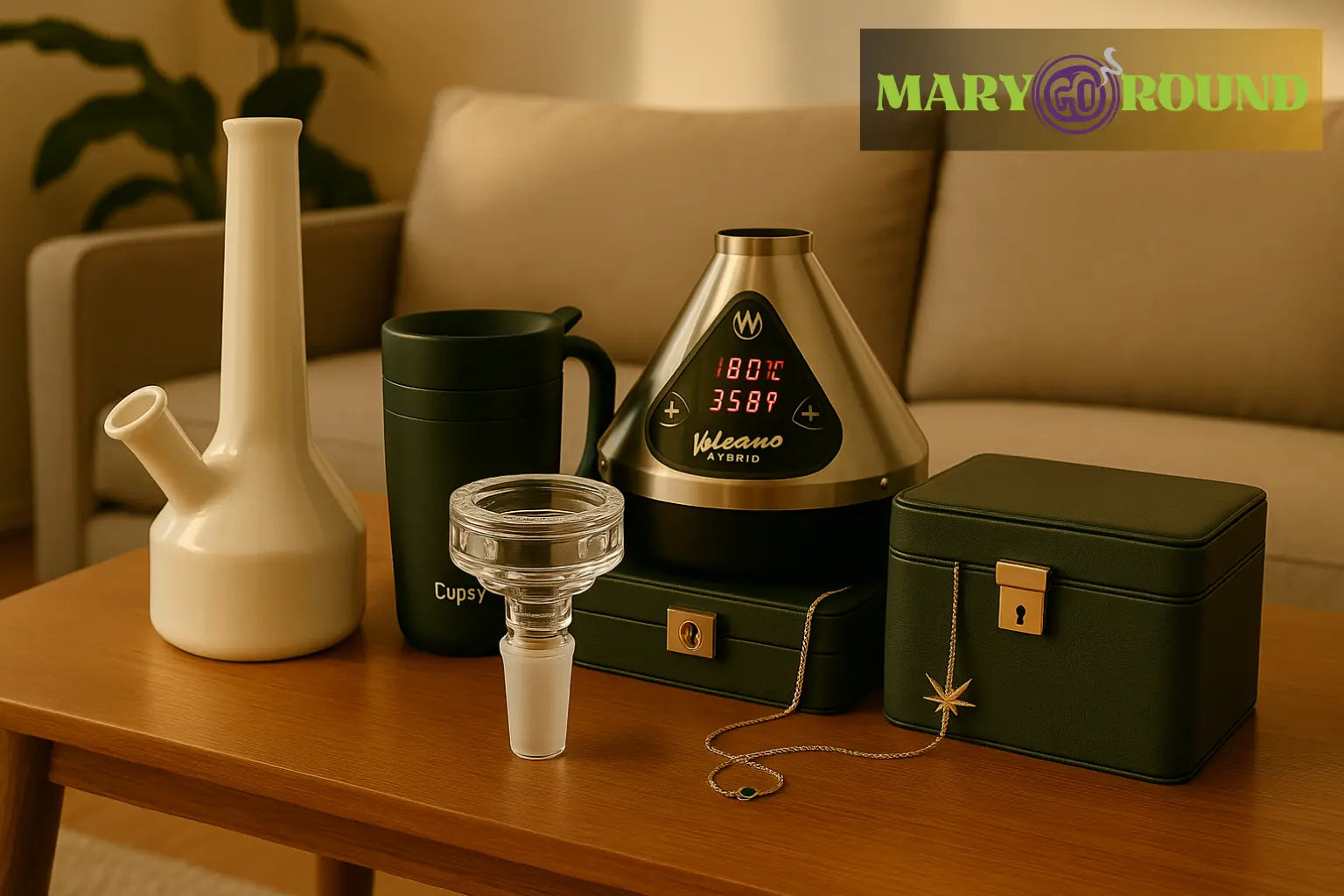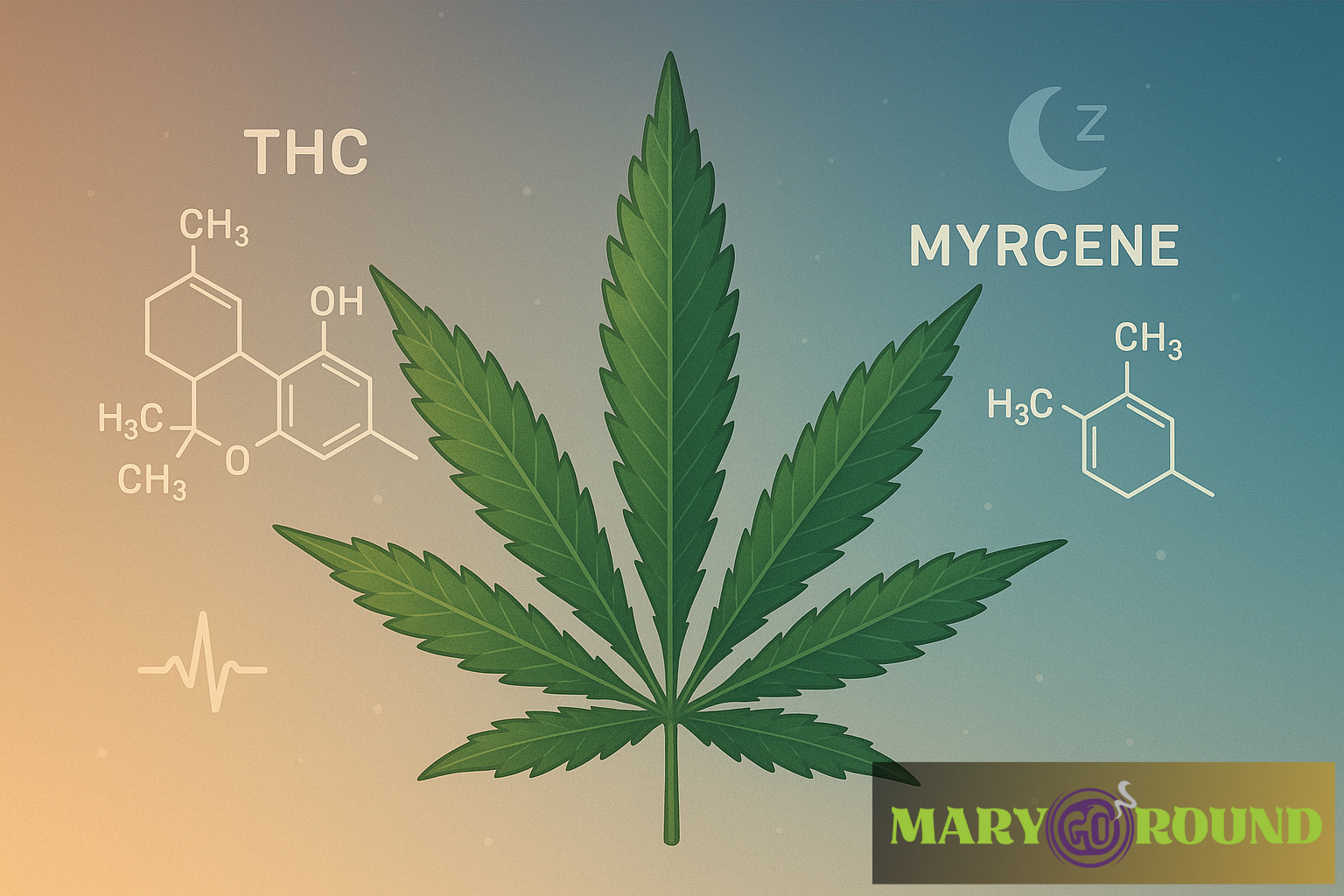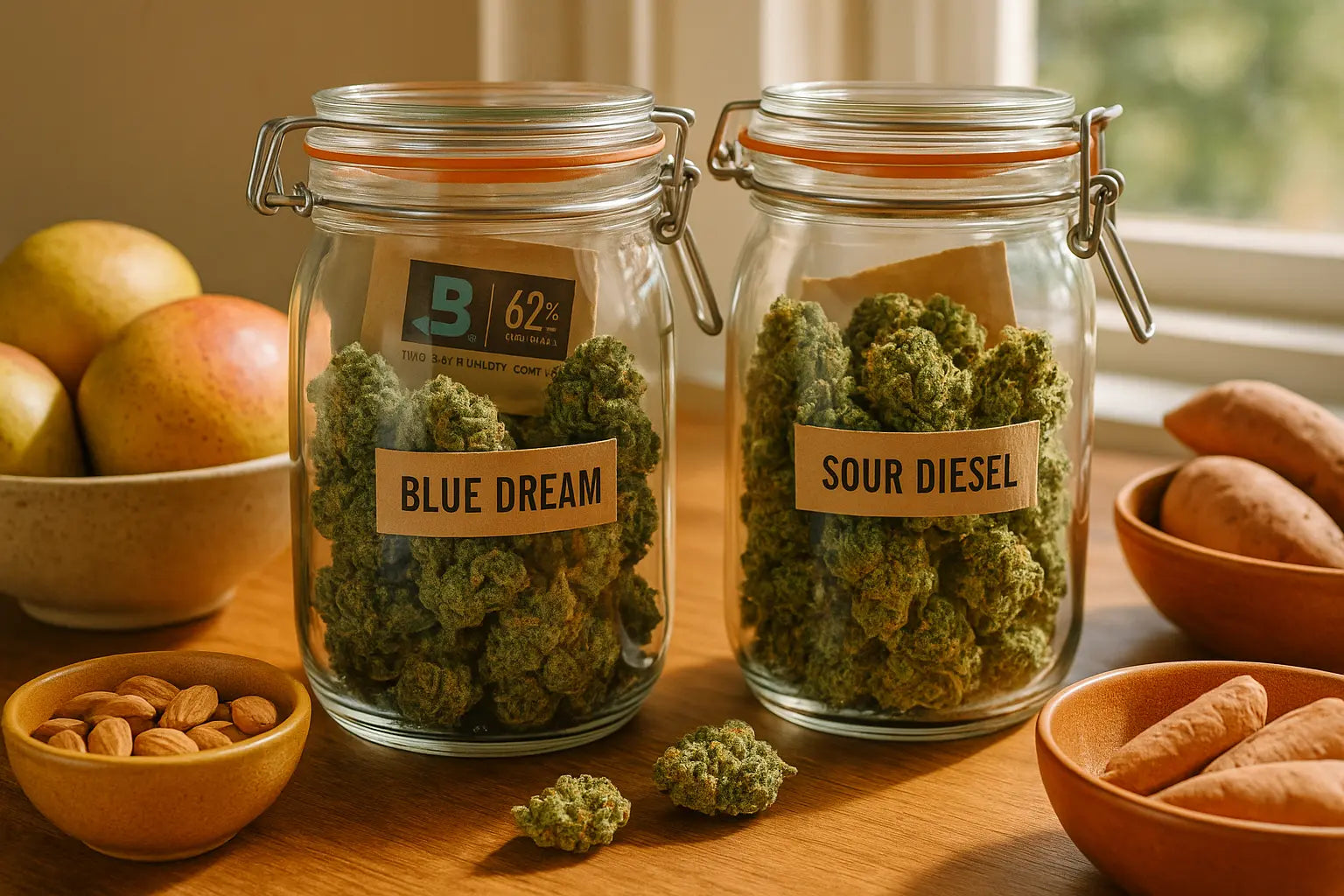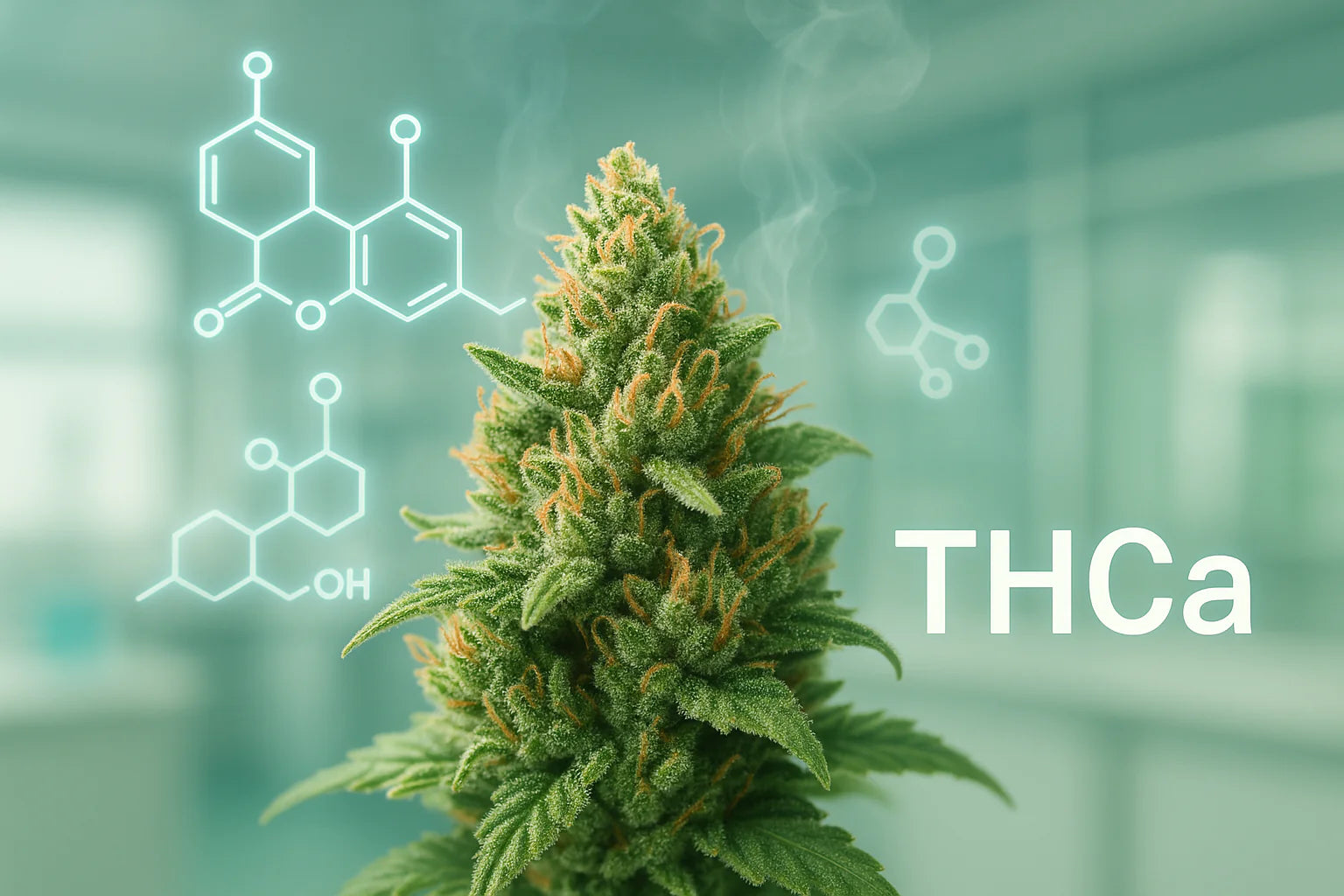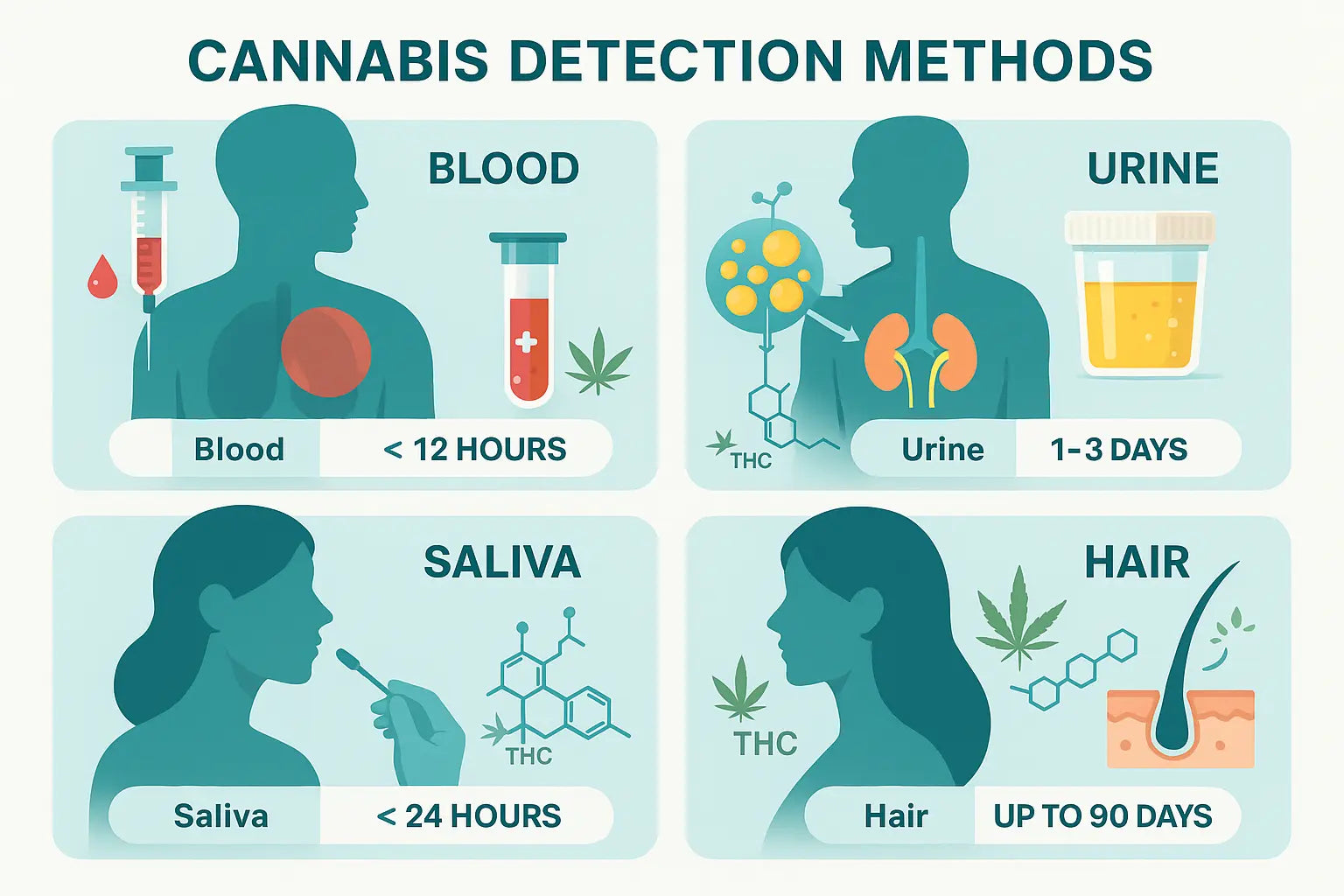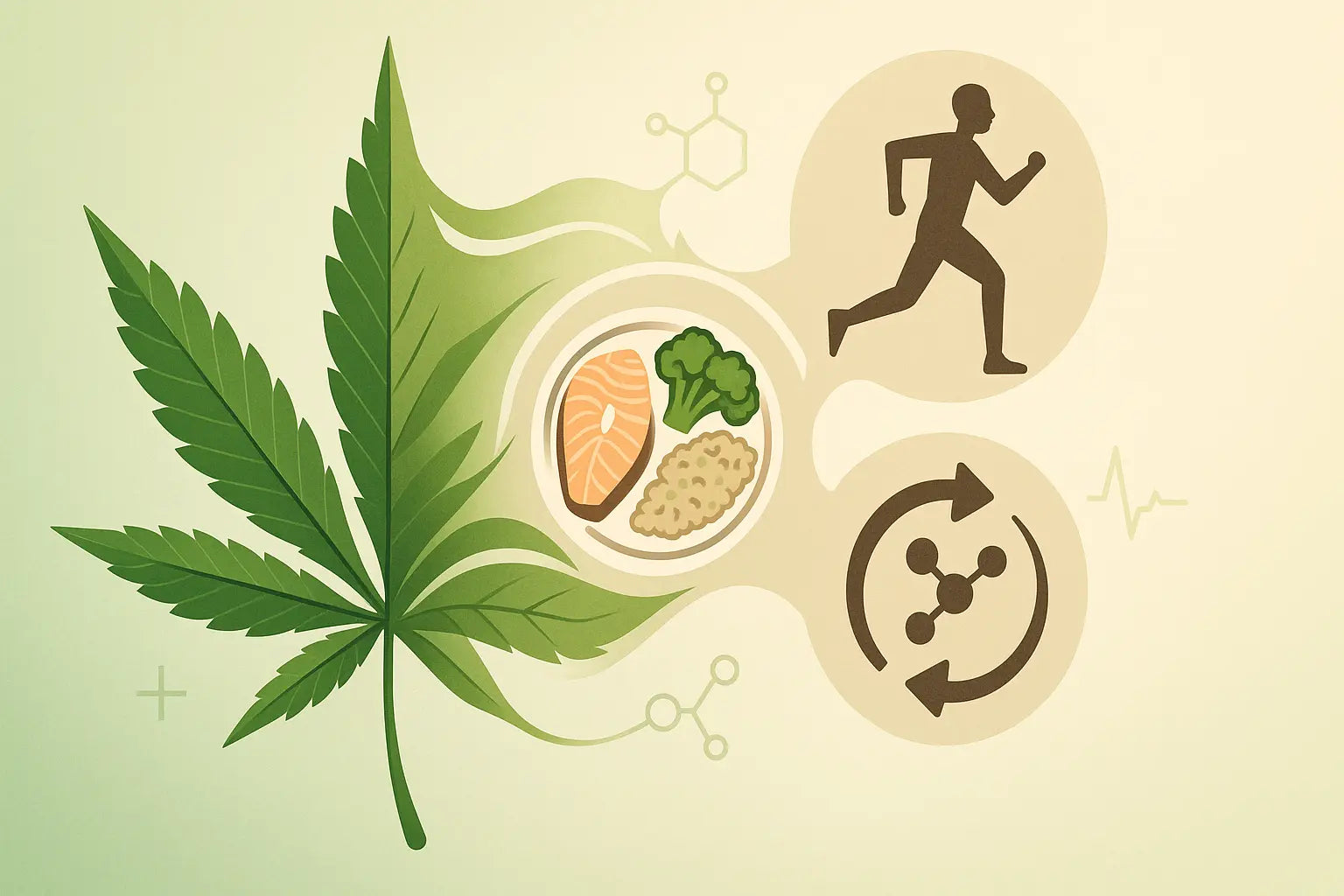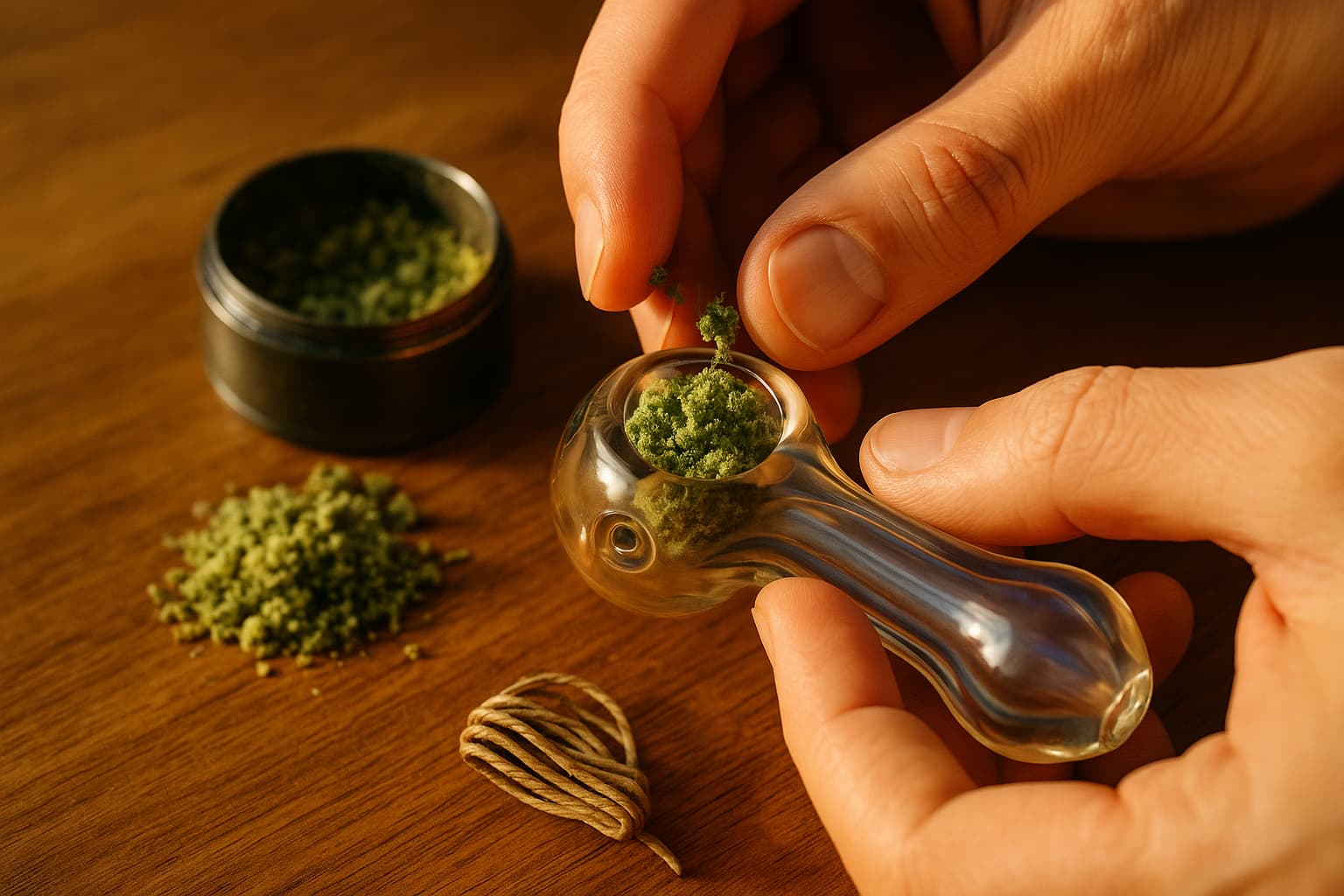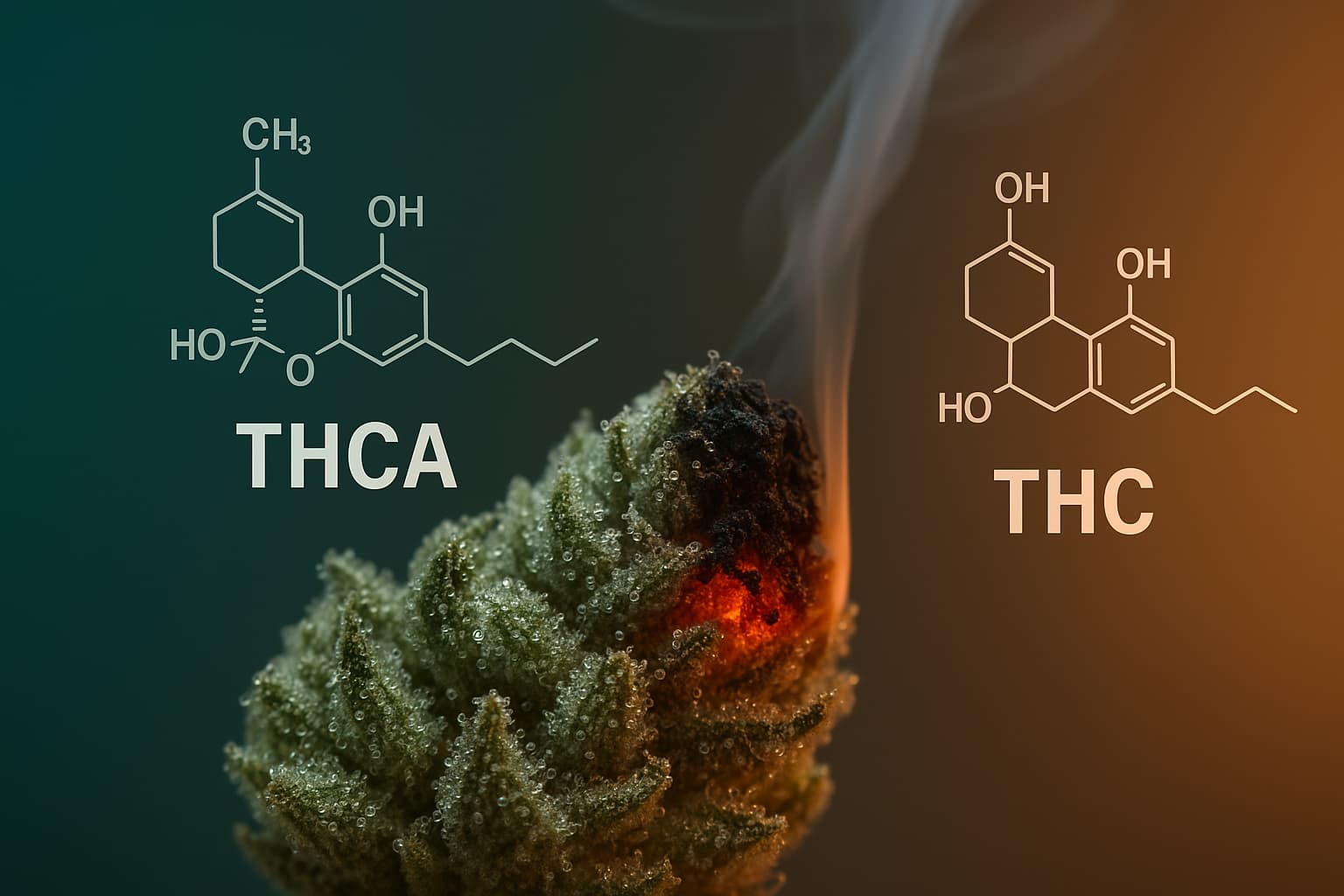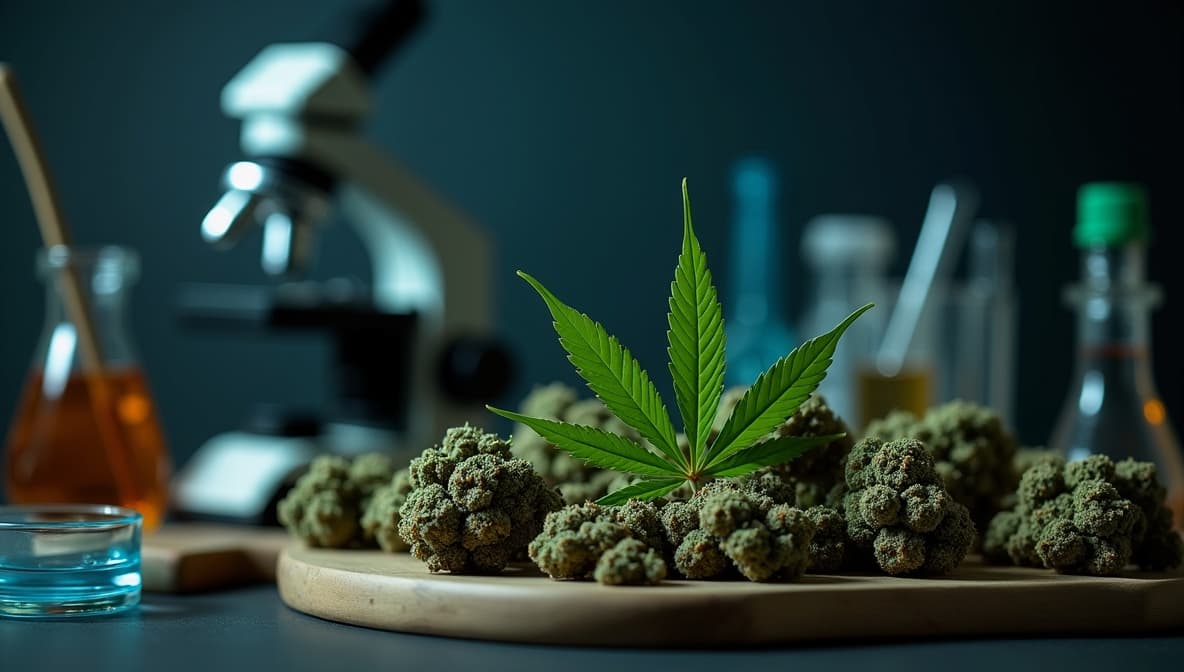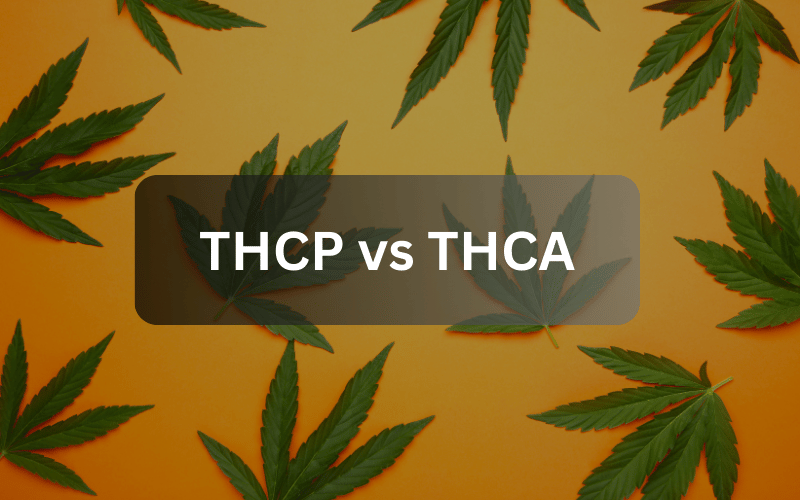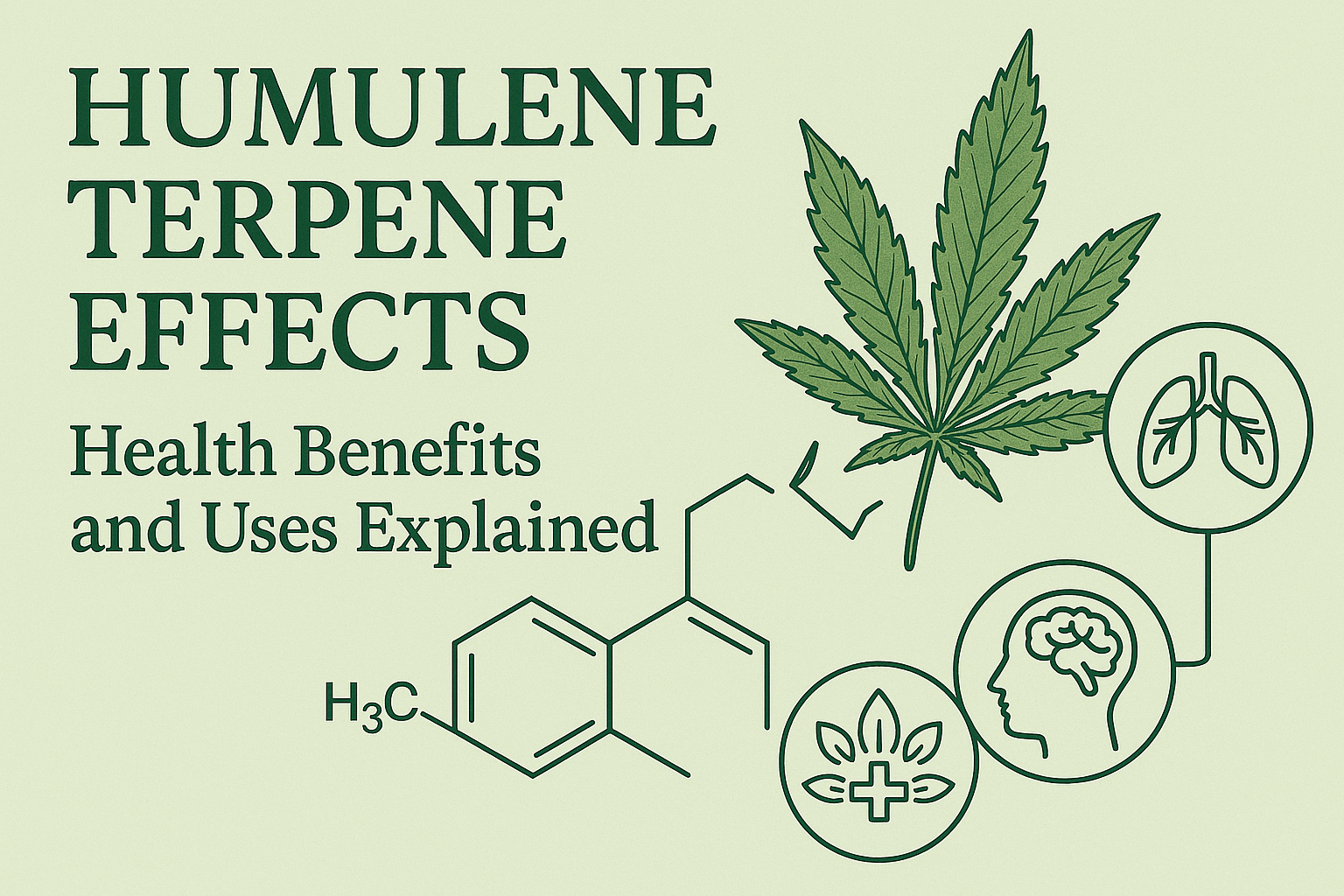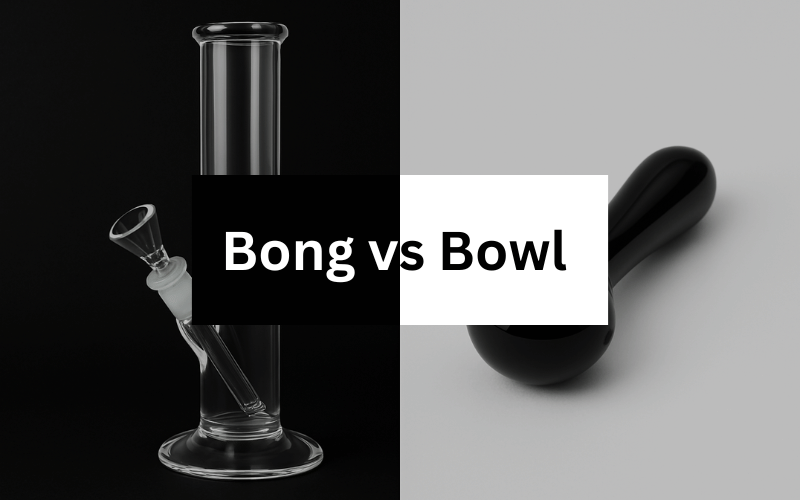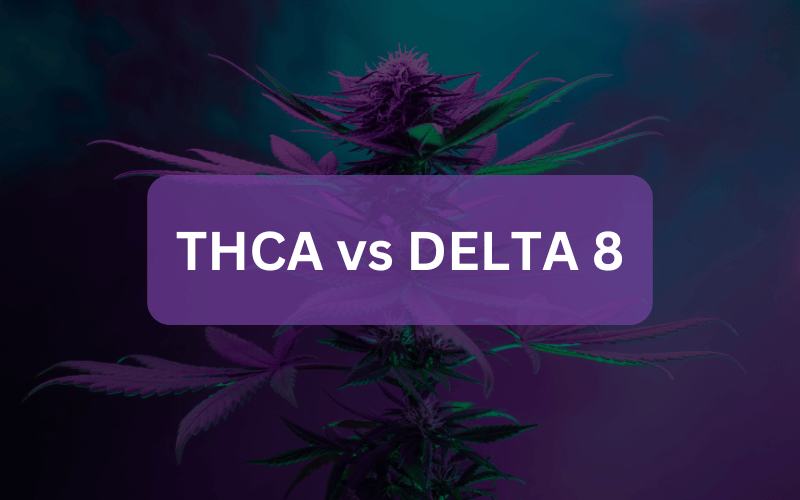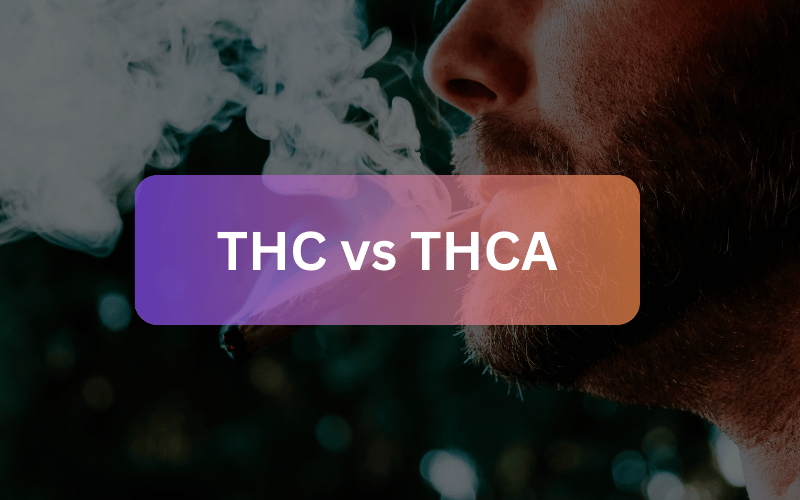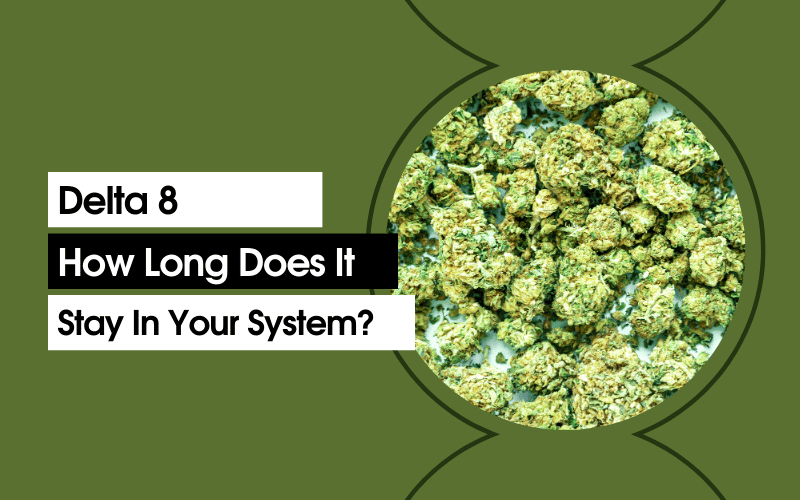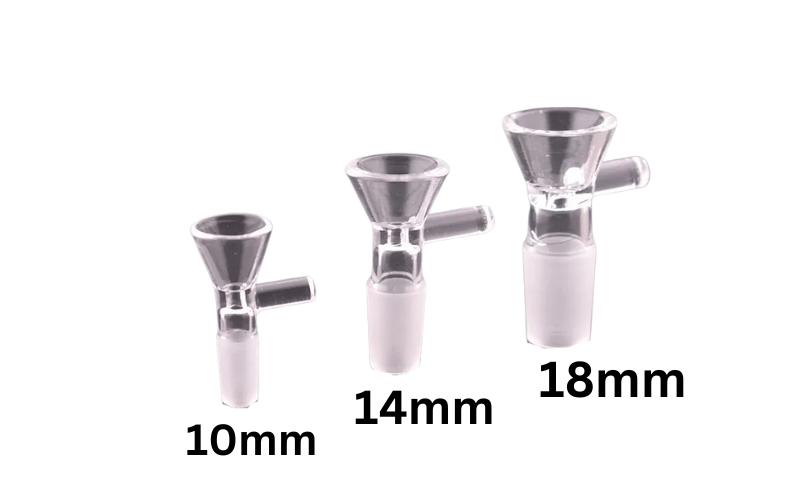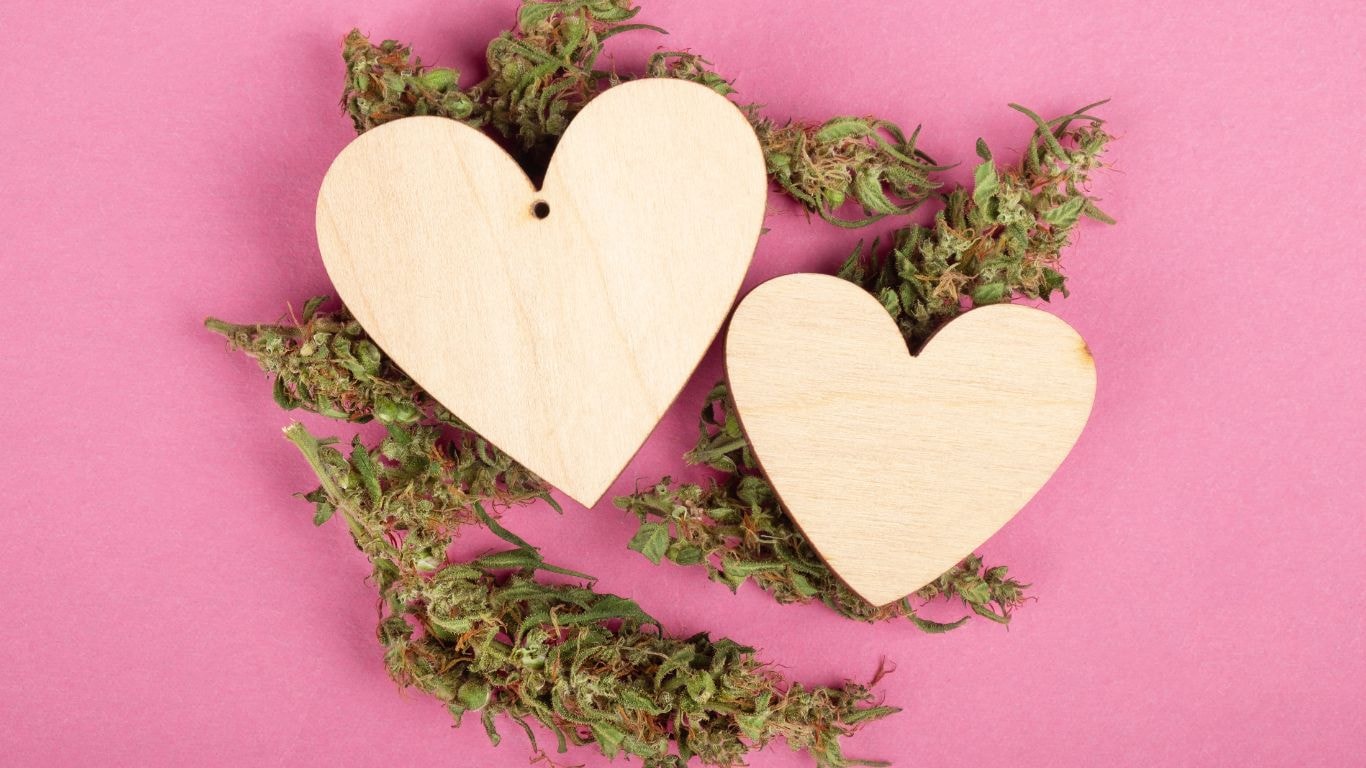
Does THC Lower Blood Pressure? Experts Explain
Posted by Tom Wittneben on
If you’ve ever wondered, "Does THC lower blood pressure?", especially after a smoke sesh, you’re not alone.
Plenty of folks in the Mary Go Round community have talked about feeling their bodies react in different ways after lighting up. Sometimes it’s a head rush, other times it’s just a mellow calm.
Researchers have been digging into this, and while THC might influence blood pressure, the science is still a bit hazy.
What do we know? It’s not as straightforward as sparking a joint and instantly balancing your heart health.
So, what will we learn in this article:
-
THC can both raise and lower blood pressure, depending on the dose and the person.
-
The endocannabinoid system plays a big role in how our bodies react.
-
Research shows mixed results, so there’s no one-size-fits-all answer yet.
-
Smoking, edibles, and other consumption methods may affect blood pressure differently.
-
Always consider your personal health before mixing THC with cardiovascular disease.
Meet THC: The Star of the Show
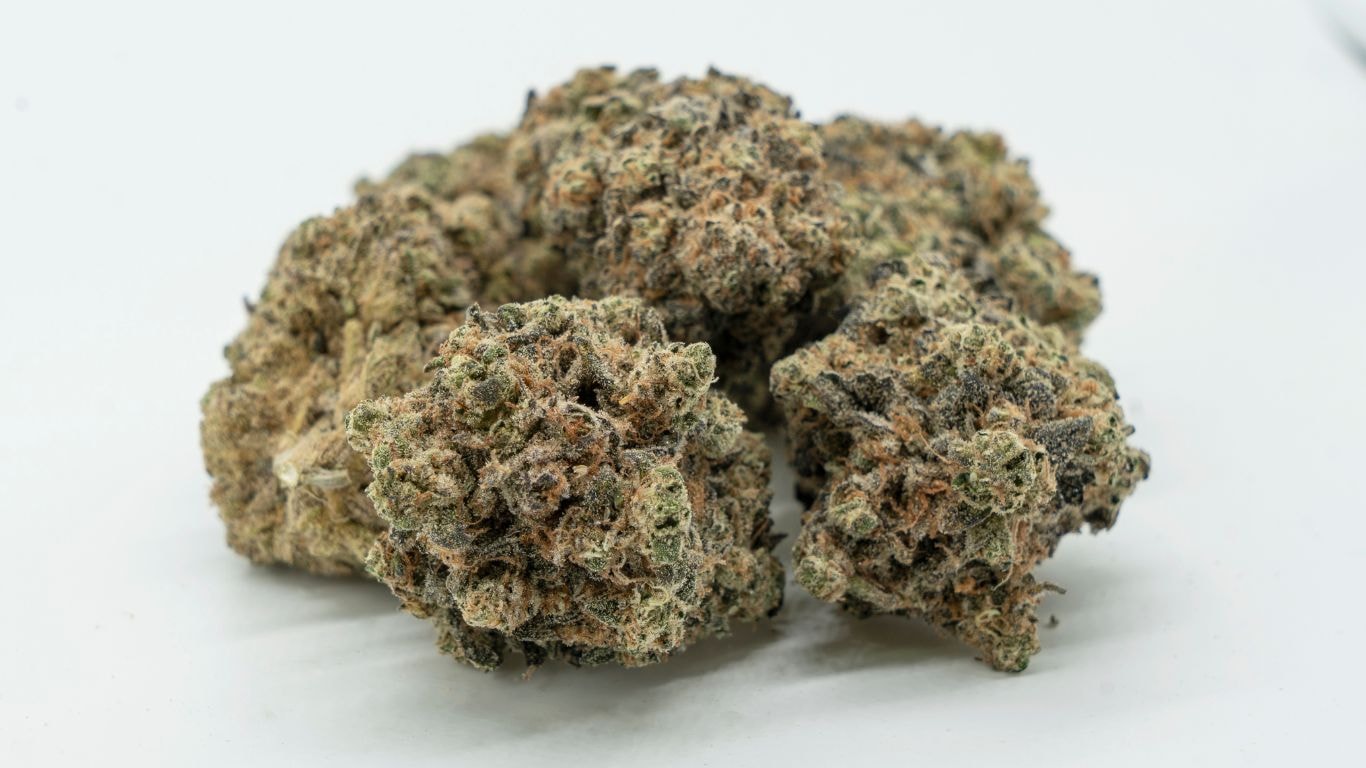
If cannabis were a band, THC would be the front-and-center lead singer everyone recognizes. But just like in music, there’s more going on behind the scenes than meets the eye.
The Psychoactive Powerhouse
THC, short for tetrahydrocannabinol, is the compound in cannabis that gives us that signature “high.” It’s what makes a smoke sesh fun, relaxing, or sometimes even trippy, depending on the strain and dose.
But how does THC create those psychoactive effects?
When you inhale or ingest THC, it binds to cannabinoid receptors, mostly CB1 receptors, in the brain. This binding changes how neurons communicate, altering perception, mood, memory, and coordination.
Basically, THC tweaks the chemical signals in your brain, giving you that floating, euphoric, or sometimes giggly sensation. The intensity depends on the dose, your metabolism, and even your mood before the sesh.
Beyond the buzz, THC interacts with the body in more complex ways, including influencing the cardiovascular system, appetite, and pain perception.
One Cannabinoid Among Many
THC isn’t flying solo. The cannabis sativa plant produces a range of cannabinoids, each with unique properties.
Together, they create the "entourage effect," enhancing the overall experience and therapeutic benefits. Here’s a breakdown:
-
CBD (Cannabidiol): Non-psychoactive, promotes relaxation, reduces anxiety, and may help with pain and inflammation.
-
CBG (Cannabigerol): Considered the “stem cell” cannabinoid; may support mood regulation and has antibacterial properties.
-
CBN (Cannabinol): Mildly psychoactive, often linked to sleep aid and sedation.
-
THCV (Tetrahydrocannabivarin): Can act as an appetite suppressant and may influence energy and focus.
-
CBC (Cannabichromene): Non-psychoactive, may help with inflammation, pain, and neurogenesis.
THC and Your Body’s Control System
Here’s where it gets fascinating. THC interacts with your endocannabinoid system (ECS), a network of receptors, enzymes, and natural cannabinoids that help regulate mood, appetite, pain, sleep, and cardiovascular function.
The ECS is your body’s internal control panel. When THC binds to CB1 or CB2 receptors in this system, it can influence heart rate, blood pressure, and vascular tone.
Individual factors, such as genetics, body mass index, metabolism, and prior cannabis experience, determine how strong or mild these effects are.
Consumption method also matters. Smoked cannabis hits fast, edibles take longer but last longer, and tinctures fall somewhere in between.
At Mary Go Round, we always say understanding your body’s relationship with the herb is just as important as picking your favorite strain. Know your limits, recognize how your body responds, and enjoy every session responsibly.
THC and Your Heart: What Really Happens
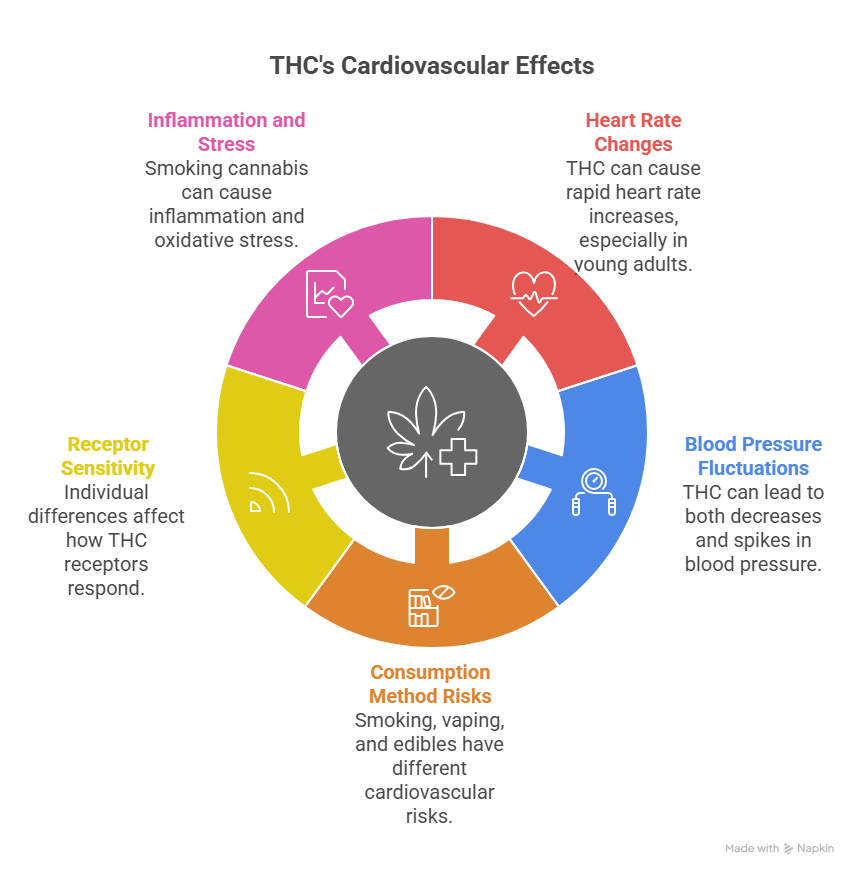
Getting to the bottom of how THC affects your heart can be a slight challenge. It twists, turns, and reacts differently depending on several factors.
Let’s break it down in a way that makes sense for any fellow cannabis lover.
The Heart Rate Rollercoaster
When you spark up, your heart can start pounding a bit faster, sometimes more than you expect. This spike happens almost immediately and is known as an acute effect.
For most healthy young adults, it’s like a brief rollercoaster ride, exhilarating but temporary. But if you’ve got a pre-existing heart condition, those rapid beats could increase the risk of arrhythmias, atrial fibrillation, or heart disease. This means it's something to keep an eye on.
Blood Pressure: Up, Down, and All Around
THC’s effect on blood pressure is a bit of a seesaw. Studies show that at low to moderate doses, it may relax blood vessels, reduce peripheral vascular resistance, and even lower blood pressure slightly.
But push the dose too high, or use it repeatedly over time, and your blood pressure can spike instead. Chronic cannabis users may see these swings more prominently, highlighting the importance of moderation and listening to your body during a sesh.
Smoke, Vape, or Edible? It Matters
How you consume your herb changes the cardiovascular game.
Smoking marijuana exposes your heart and blood vessels to chemicals similar to those in tobacco smoke, which can increase risks for a heart attack or ischemic stroke.
Vaping may reduce some of the hazards of combustion, but it isn’t risk‑free. And edibles, while smoke‑free, come with their own concerns.
A May 2025 study found vascular function was reduced by 42% in marijuana users and by 56% in THC‑edible users compared to nonusers. That suggests edibles might stress the cardiovascular system in ways we’re only beginning to understand.
Science is still catching up here, so caution is key no matter how you toke.
Cannabinoid Receptors at Work
THC doesn’t act alone; it works through cannabinoid receptors in your body, mainly CB1 and CB2.
These receptors help regulate heart function, blood pressure, and other physiological processes. Individual differences, like gender, hormone levels, and overall health, affect how sensitive these receptors are.
That’s why two people might have totally different experiences from the same strain or dose.
Inflammation and Oxidative Stress
Smoking cannabis can also stir up inflammation and oxidative stress in arteries. This may cause increased blood pressure and potentially increase the risk of strokes.
Peeking Into the Lab: How Scientists Study Cannabis and the Heart
Scientists use different study designs to understand cannabis and cardiovascular health, from quick snapshots to years-long tracking.
-
Cross-sectional studies give a glimpse of marijuana use and heart health at one point in time.
-
Longitudinal studies follow people over months or years to spot patterns and potential cause-and-effect relationships.
-
Randomized controlled trials are rare but super insightful, offering direct evidence of cannabis’s impact when regulations allow.
Challenges in the Cannabis Lab
Because cannabis is still a Schedule I substance federally, it is considered an illicit drug. Therefore, researchers face serious hurdles. Funding, access to quality cannabis, and strict regulatory hoops make it tough to run the kinds of experiments that give clear answers.
Despite this, scientists rely on questionnaires, physical exams, and lab tests to gather as much accurate data as possible. They also crunch numbers carefully, accounting for age, sex, tobacco use, and other confounders that could skew results.
Current Findings and Recommendations
The research landscape is mixed; some studies point to potential benefits, while others highlight risks.
This is why professional organizations like the European Society of Cardiology advise medical professionals to consider cannabis use when evaluating cardiovascular risk when speaking with their patients.
It’s also why the scientific community is calling for more robust, longitudinal, and controlled studies to better understand THC’s true impact.
Looking Ahead: The Future of Cannabis Research
Even with limitations, the future is bright for cannabis and heart research. Newer methods, more standardized study designs, and increasing acceptance of cannabis for medical use are paving the way for clearer insights.
Over time, we’ll better understand which populations may benefit, which should proceed with caution, and how different cannabis consumption methods can alter cardiovascular effects.
For now, the best approach is staying informed, mindful, and choosing your sesh wisely.
Keeping Your Heart Happy While You Toke: Tips for Safe Cannabis Use

Smoking herb should be fun, not a stress test for your cardiovascular system. Here’s how to protect your heart while still enjoying your sesh.
Start Low, Go Slow
Always begin with a low dose, whether it’s flower, edible, or concentrate. Gradually increase only if you feel comfortable, giving your body time to adjust.
This helps prevent sudden spikes in heart rate or blood pressure and keeps your experience smooth. Keep a journal of your sessions to track how different strains or doses affect you personally.
Consider Your Method
Smoking exposes you to harmful chemicals that can affect your heart. If you’re concerned about elevated blood pressure, think about switching to vaping, edibles, or tinctures.
These methods reduce cannabis smoke inhalation and still give you the THC experience. Even within smoking, try to choose purer strains and avoid additives to minimize risks.
Check With Your Healthcare Provider
If you have a history of heart problems or other cardiovascular risk factors, don’t skip a conversation with your doctor, even when smoking medical marijuana. They can help you understand your personal risk and guide you toward safe consumption practices.
Be honest about your cannabis habits and ask specifically how different methods or doses might interact with your cardiovascular health.
Watch for Medication Interactions
Cannabis can interact with some prescription medications. Make sure you’re aware of potential conflicts, especially if you’re on heart-related medications, blood thinners, or other cardiovascular treatments. Your doctor or pharmacist can help you navigate potential side effects and monitor your health closely.
Lifestyle Matters
Supporting heart health isn’t just about how you consume cannabis. Eat a balanced diet rich in fruits, vegetables, and whole grains, stay active with cardio or yoga, and manage stress with mindfulness techniques or light meditation.
Avoid combining cannabis with alcohol or other substances that could strain your heart.
Timing is Everything
Avoid using cannabis when your heart is already under stress, like after intense exercise or during times of high anxiety. Toking during a relaxed period can help your cardiovascular system handle the effects more safely.
Buddy System
If you’re trying a new strain or higher dose, consider having a trusted friend nearby. They can help monitor for signs of dizziness, racing heart, or other adverse effects, adding an extra layer of safety.
Stay Informed and Mindful
As research evolves, staying up to date is key. Be aware of new findings on THC and high blood pressure, and always tailor your sesh to your body’s needs and limits.
Knowledge is the ultimate tool for a safe and enjoyable experience. Regular check-ins with your healthcare provider and self-monitoring will ensure that your seshes remain both enjoyable and safe.
Wrapping It Up: Your Heart and Herb
THC can affect your heart in both subtle and noticeable ways, depending on dose, frequency, and personal health factors. While some studies hint at potential benefits for blood pressure, the risks, especially with smoking, shouldn’t be ignored.
At Mary Go Round, we want your seshes to be enjoyable and safe, so understanding your limits is key. When you’re ready to enhance your experience, whether it’s with the best grinders or the perfect bong bowls, we’ve got you covered.
Frequently Asked Questions
We know navigating cannabis and heart health can be confusing. At Mary Go Round, we’re here to help you understand the science and enjoy your herb safely.
What Does THC Do to Your Heart Rate?
THC can cause your heart to beat faster, particularly right after consumption. This effect is called an acute increase in heart rate and is usually temporary in healthy adults.
It happens because THC interacts with the endocannabinoid system, which helps regulate cardiovascular functions. For individuals with pre-existing heart conditions, this spike could pose a higher risk, so moderation and monitoring are essential during your sesh.

